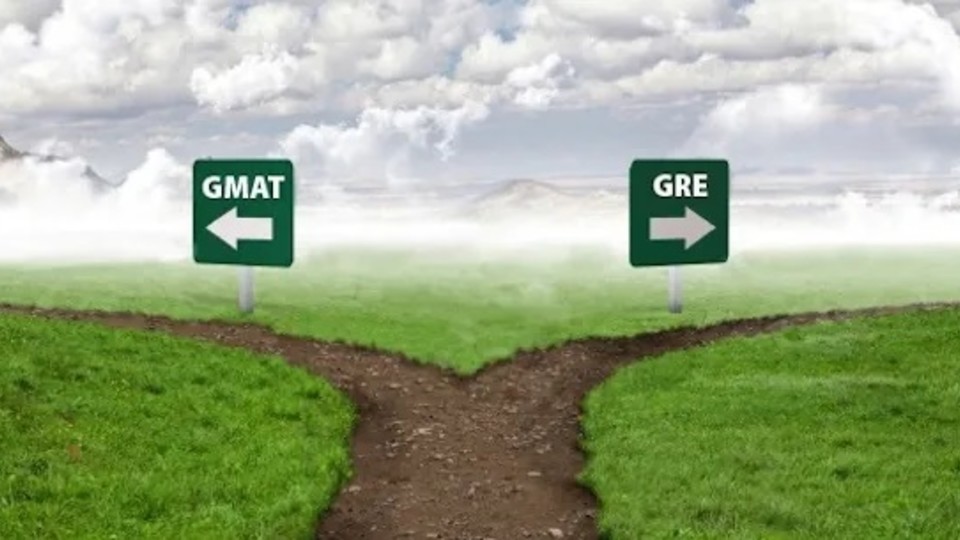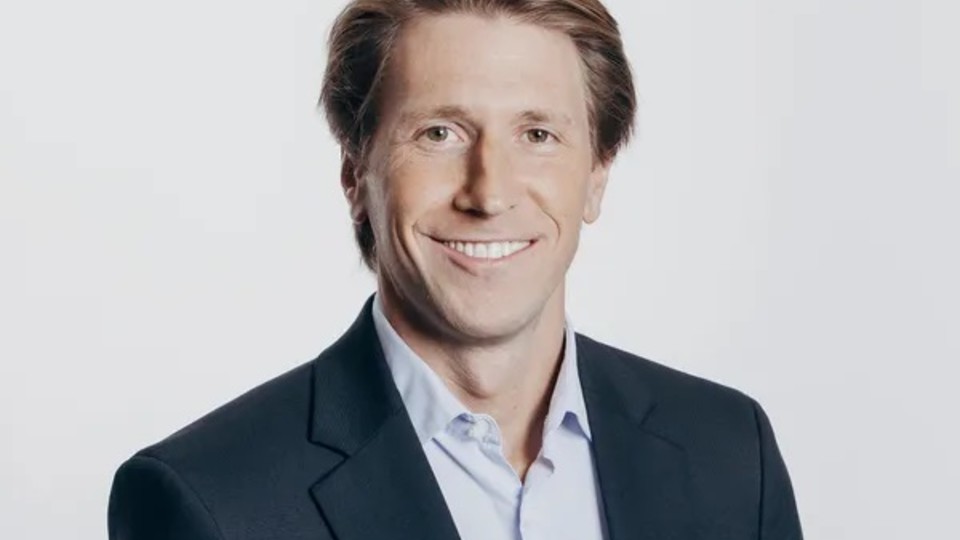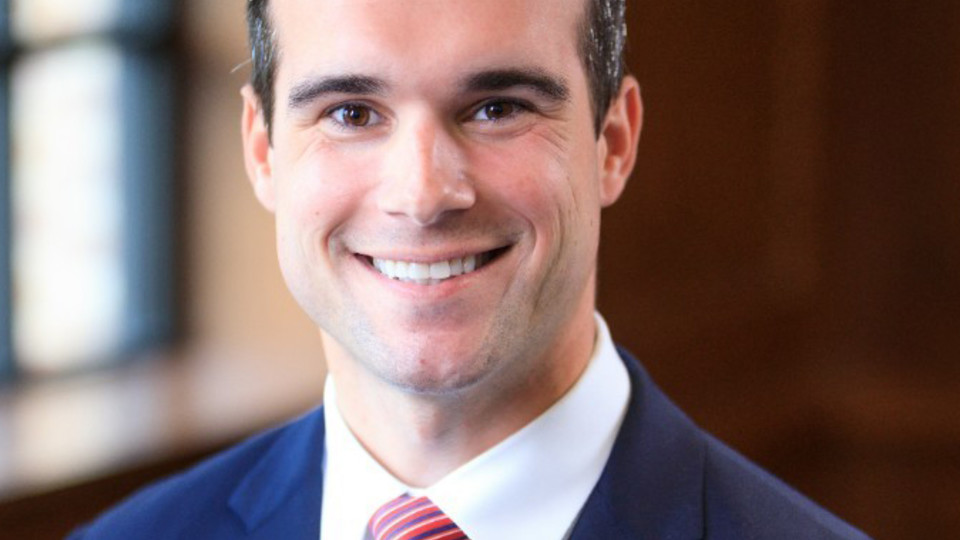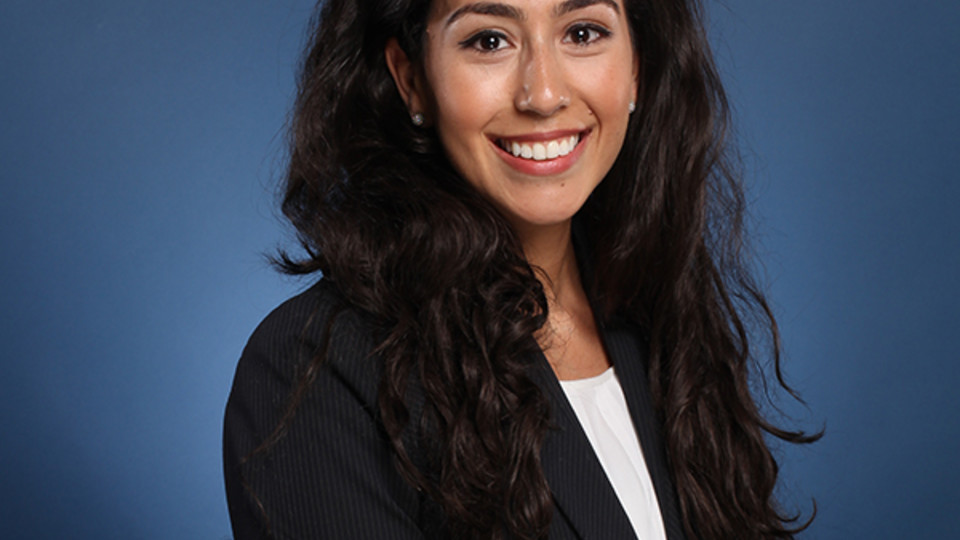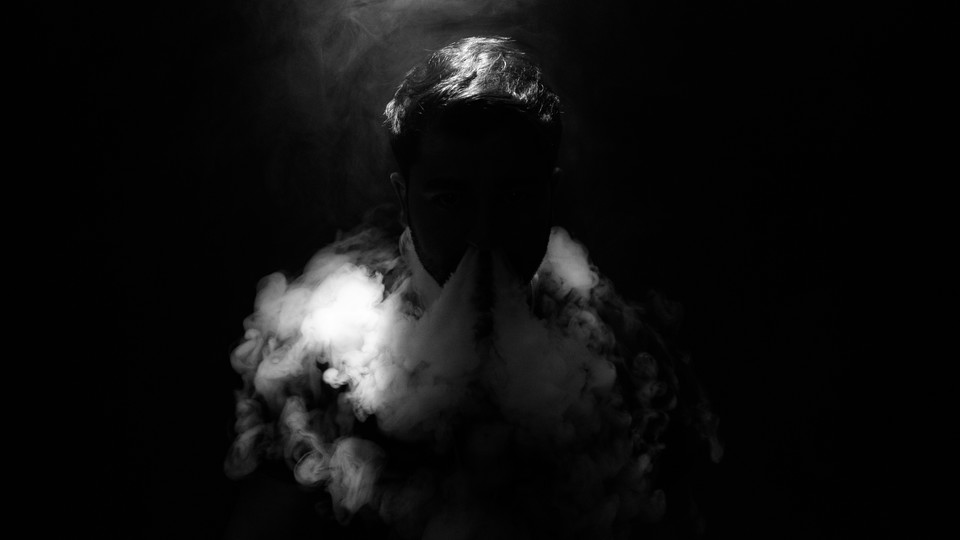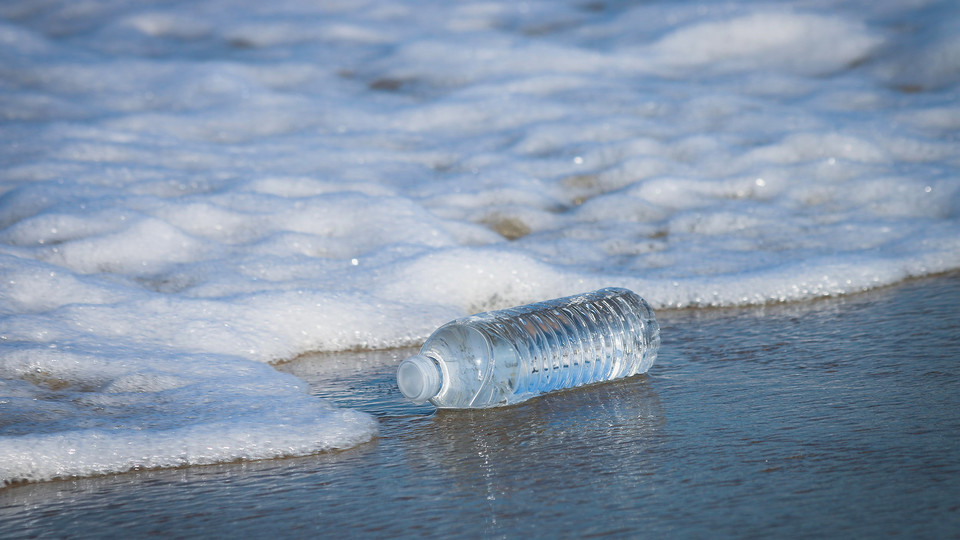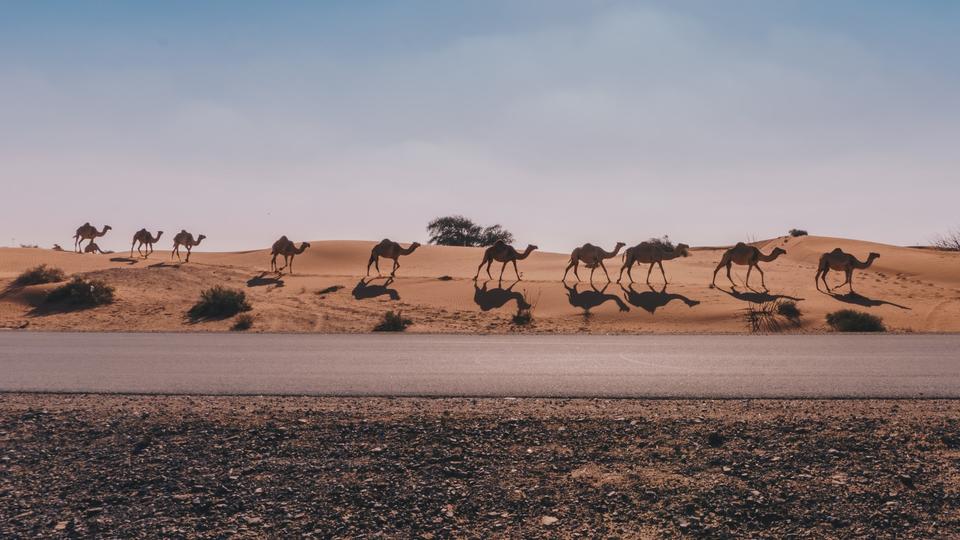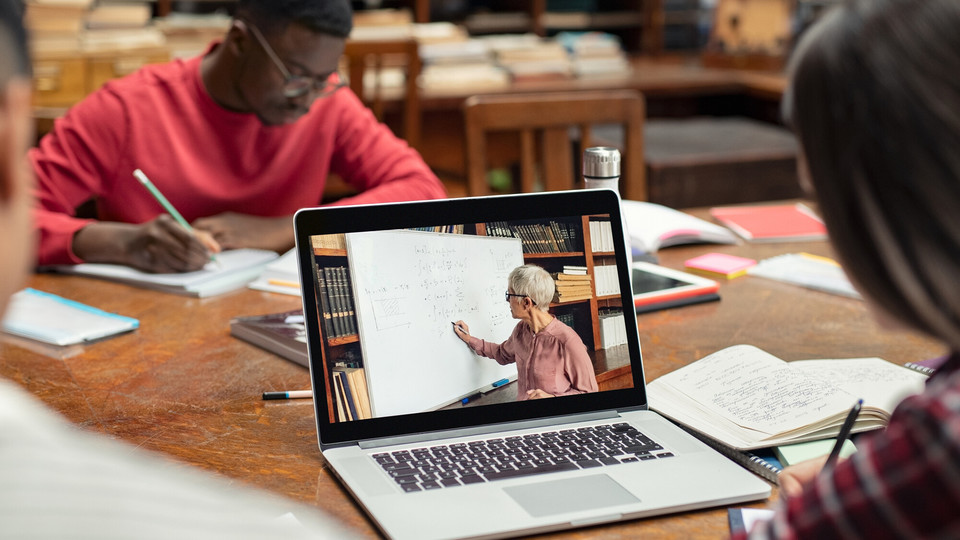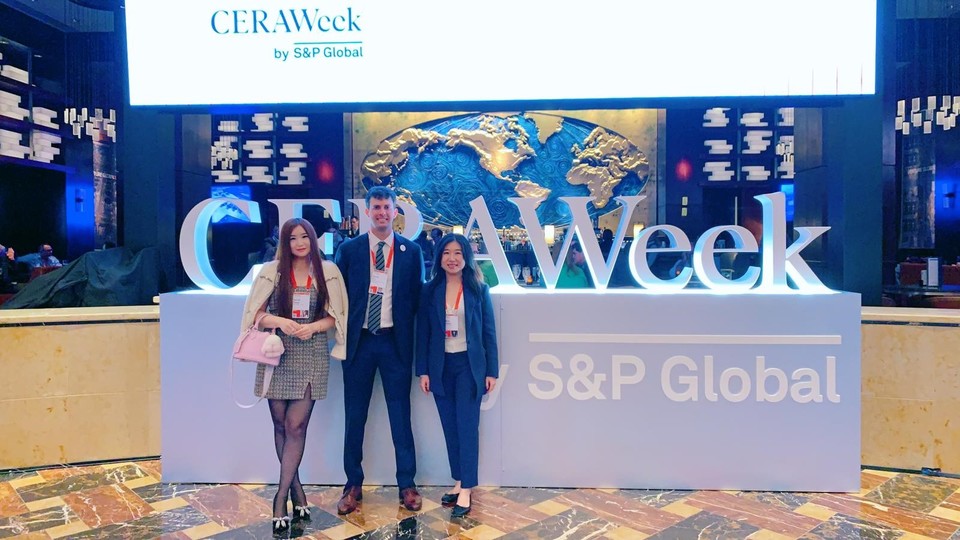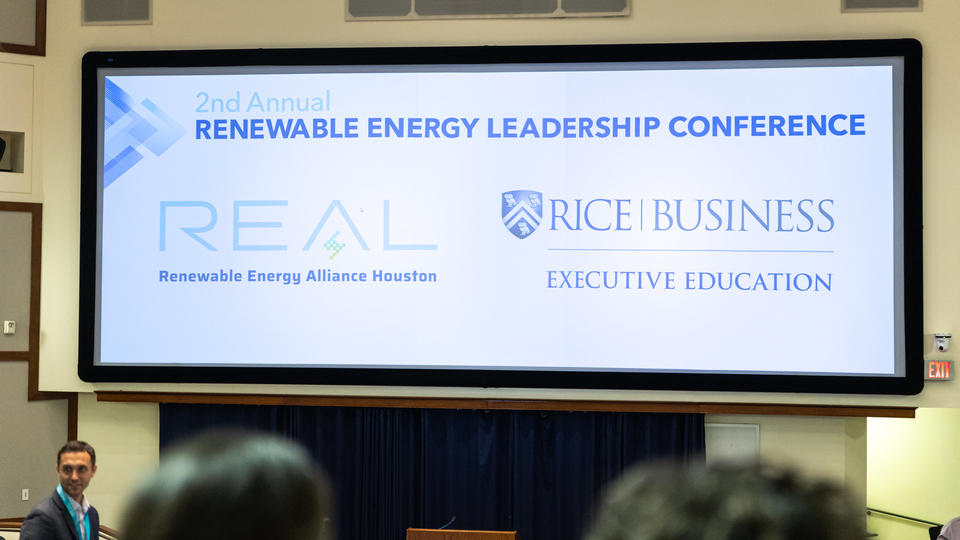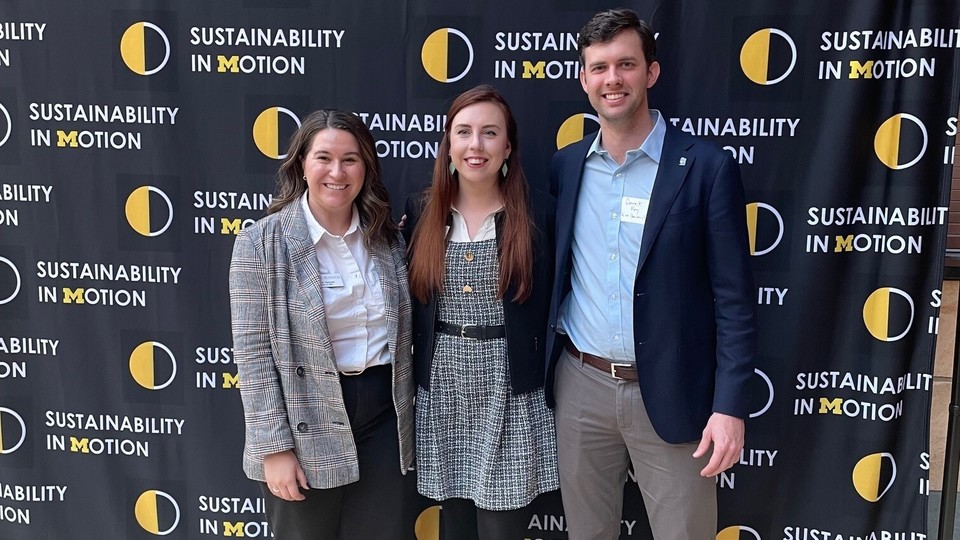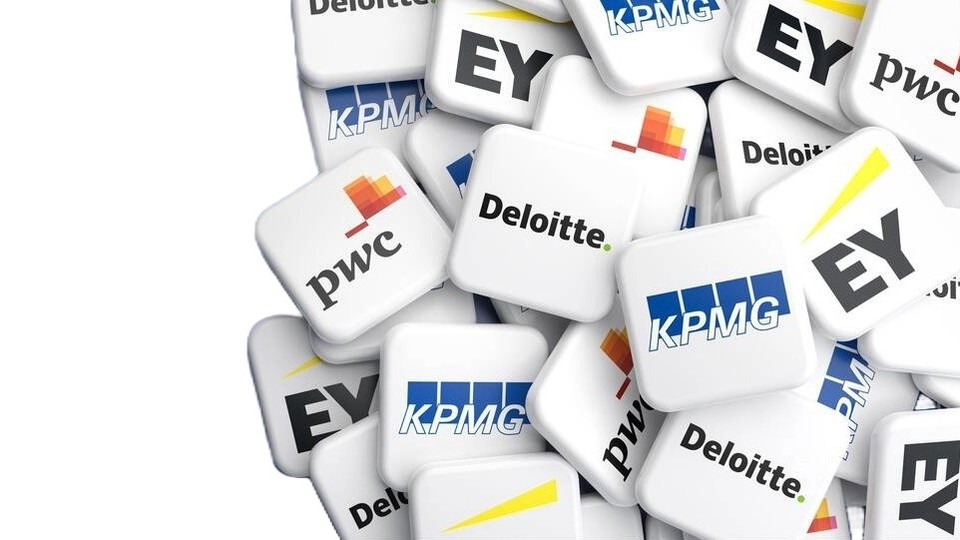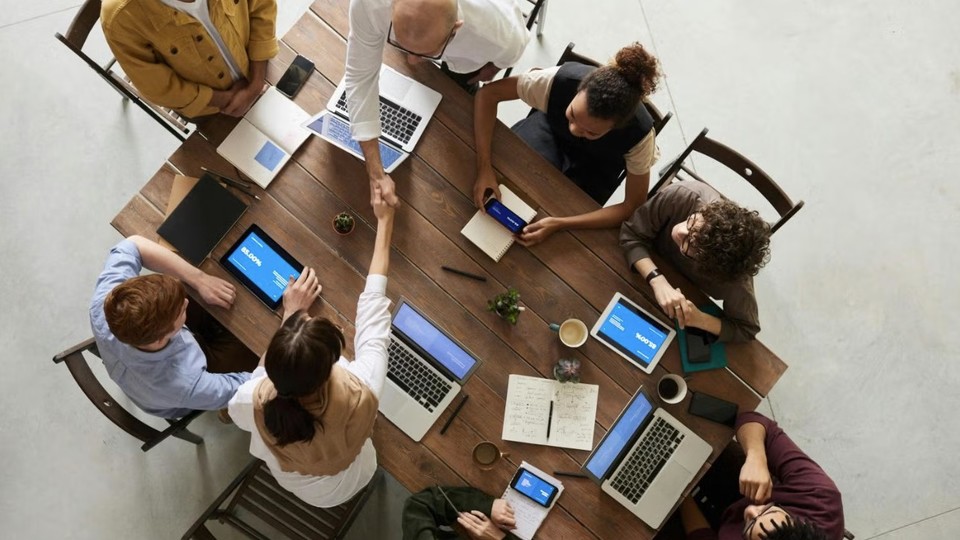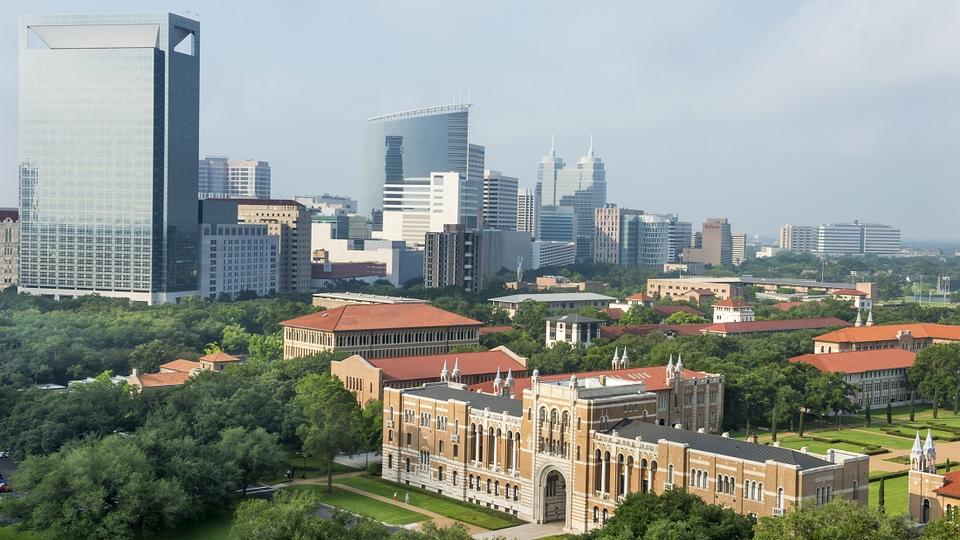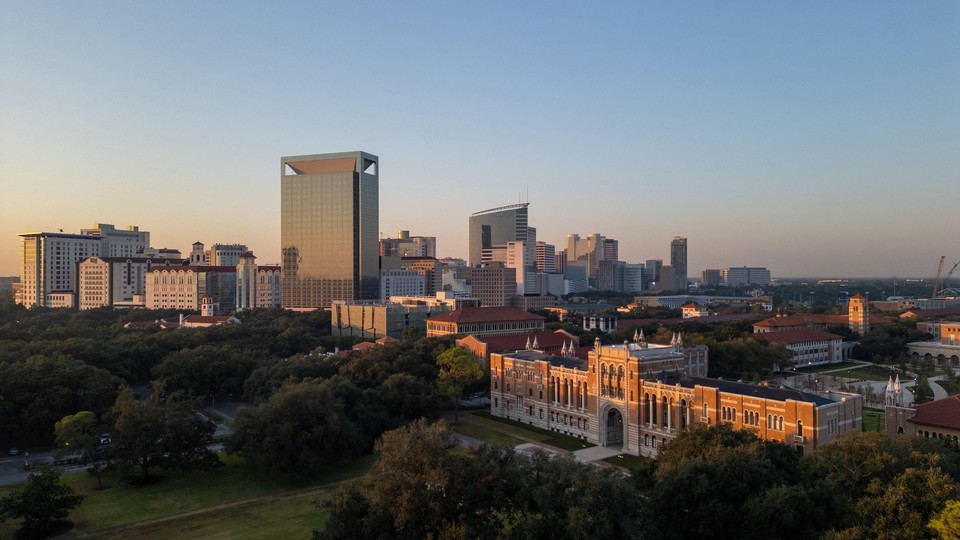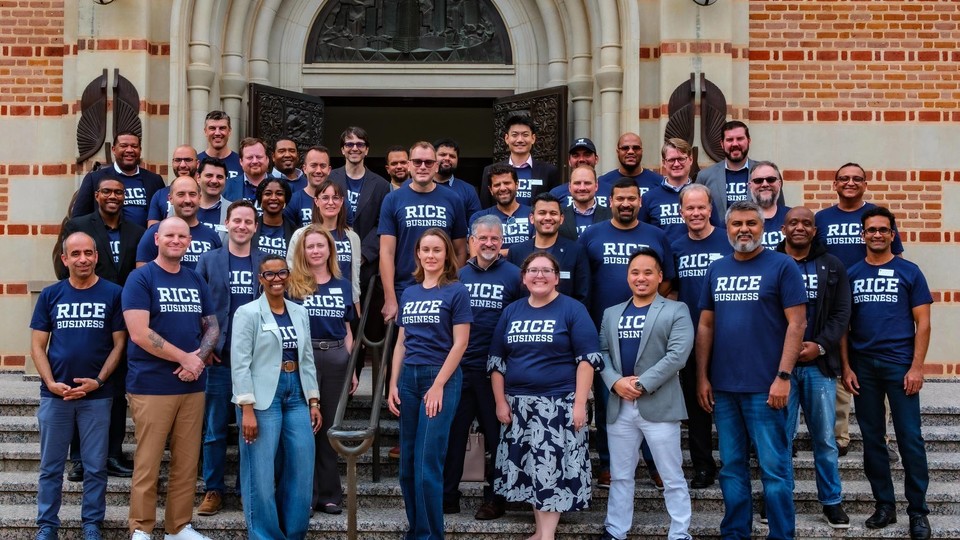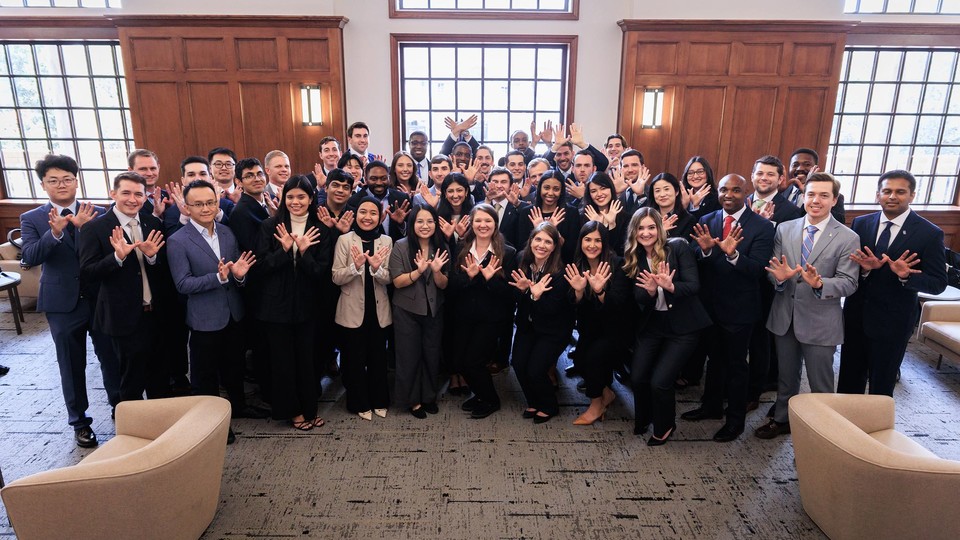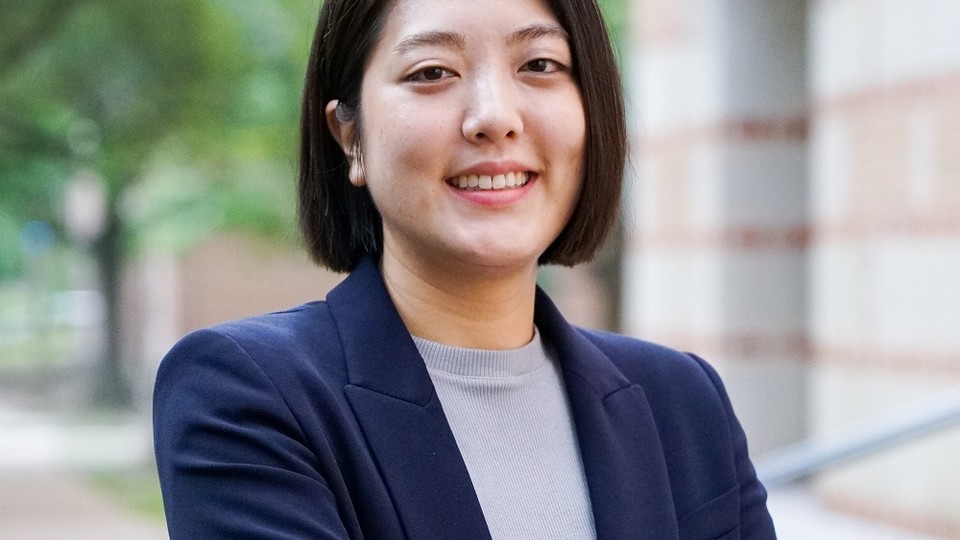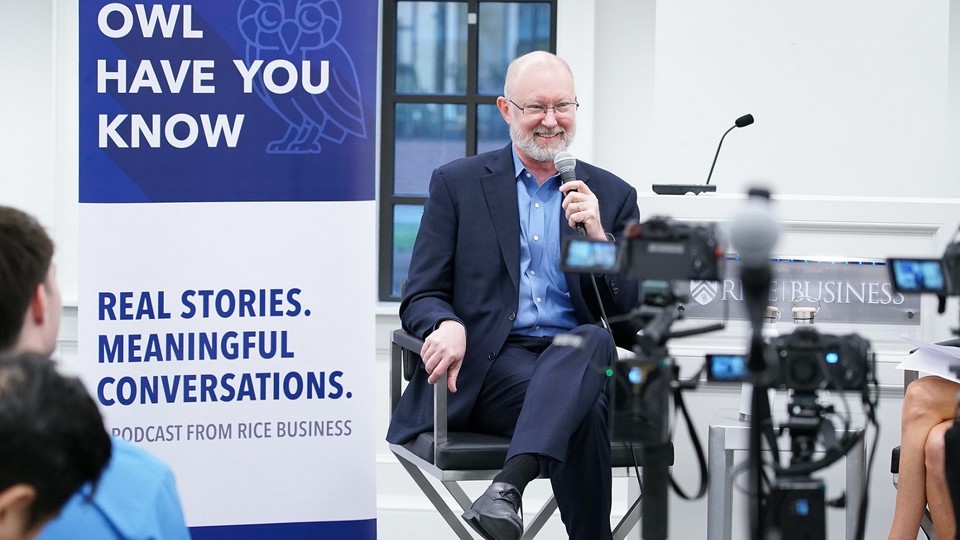Kelley Direct Online MBA Tops Yet Another Ranking
The Rice Busines Online MBA is included at number seven in this list of the top online programs for 2024.
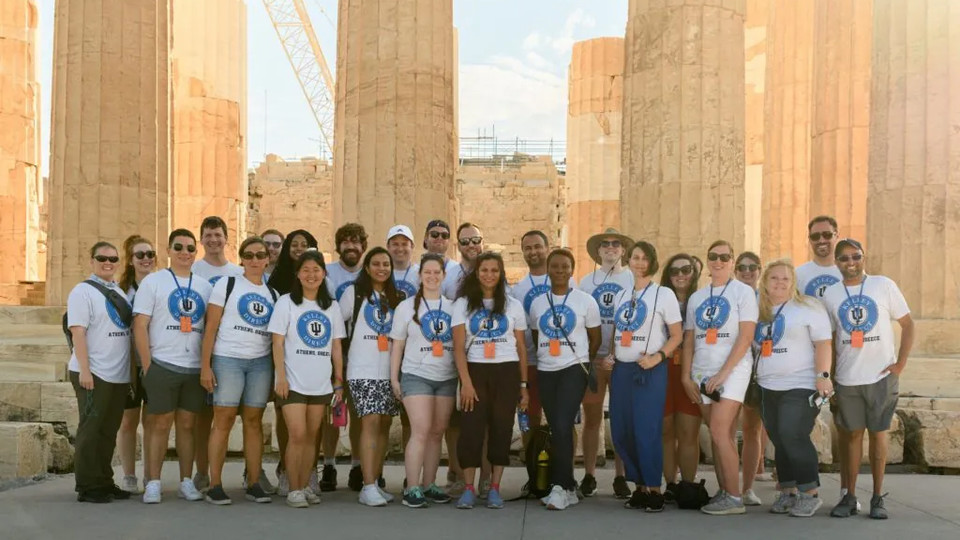
A Mother-Daughter MBA Journey feat. Misty Fehler ’24 & Alexis Weaver ’24
Season 4, Episode 17
Host Maya Pomroy '22 catches up with this mother-daughter powerhouse to discuss the challenges of balancing family life with the MBA, the importance of collaboration and the inception of their macaron business.
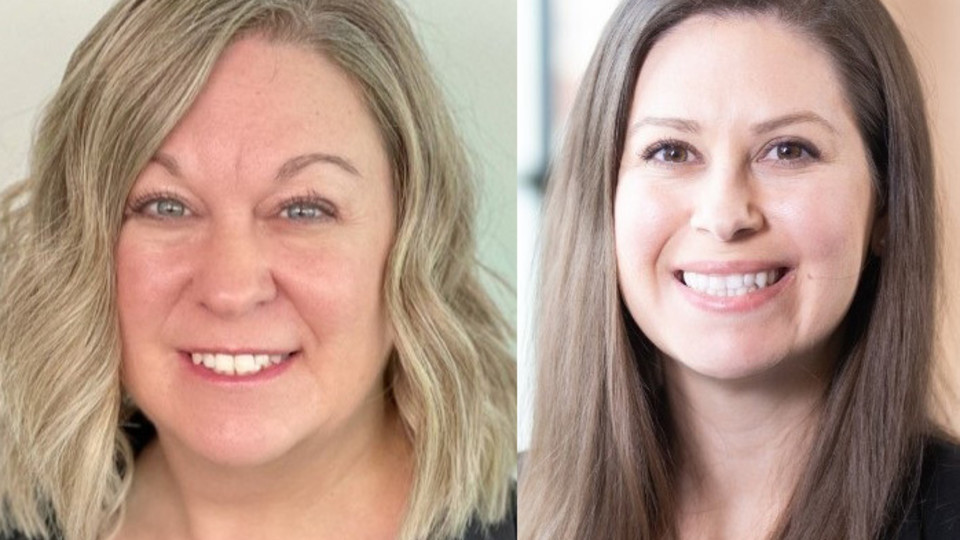
Owl Have You Know
Season 4, Episode 17
We have plenty of Rice families in our history. But it's rare to see a mother and daughter earn their Professional MBAs at the same time. Misty Fehler and Alexis Weaver graduated in May and co-founded La Mer Macaron, offering an assortment of homemade macarons for home delivery.
Misty is the CEO of La Mer Macaron. She spent most of her career as an independent petroleum landman for various companies in Texas, before pivoting to nursing. In 2023, she left nursing and co-founded La Mer Macaron with her family.
After years of working in public and behavioral health, Alexis eventually left those industries to launch La Mer Macaron with her mom, and is the vice president.
Our host Maya Pomroy ’22 catches up with this mother-daughter powerhouse to discuss their motivations, the challenges of balancing family life with education, the importance of collaboration and the inception of their macaron business. The conversation highlights the support system within their family, their experience at Rice Business, and their aspirations for the future.
Subscribe to Owl Have You Know on Apple Podcasts, Spotify, Youtube or wherever you find your favorite podcasts.
Episode Transcript
-
[00:00]Maya: Welcome to Owl Have You Know, a podcast from Rice Business. This episode is part of our Pivot Series, where guests share stories of transformation in their lives and careers.
On today's episode of Owl Have You Know, we have two very special guests, Misty Fehler and Alexis Weaver, Professional MBAs of the Class of 2024. Welcome, Alexis and Misty.
[00:23]Misty: Hi, thank you.
[00:25]Alexis: Thank you.
[00:25]Maya: So, I don't know if this has happened before. It probably has in Rice's five decades long business school history, because 50 years, but for me, this is a first. I get to interview a mother and a daughter who decided to pursue their MBAs together. You know, I'm assuming you two are close. Is that an accurate assumption?
[00:54]Misty: Yes.
[00:55]Alexis: Yes, that would be accurate.
[00:57]Maya: Okay. So, tell me how you decided to, first of all, you both have really phenomenal and interesting backgrounds. And not only did you decide to pursue this goal together, but you're also in business together. And there's so much to get through and I have so many questions. And I'm going to leave some of the best ones to the very end. But tell me your story. Let's start with you, Alexis. So, you did not start off in entrepreneurship.
[01:25]Alexis: No, I did not. I actually did my undergraduate degree in political science, and then I actually have another master's degree in public administration. And so I, kind of, built this whole career and mindset around, “I'm going to go into public service, and I'm going to start at the bottom, work my way up through government, do something big,” and, kind of, very quickly realized a career bureaucrat isn't for me.
And so, I, kind of, started looking for other opportunities of, what could I do? And so, we lived really close to Rice. And I was like, “Maybe, going back to school is another idea.” And so, MBA came across the table for me. And I originally started looking into it before we actually applied. But I was going to have a baby in October, and so, I, kind of, thought probably not a good time to start an MBA, have a baby a few months later. And so, put it on the back burner, but it was always on my mind.
And so, it was the next year that my mom actually started looking into it more, doing some class visits, and invited me, like, “Hey, I know you were thinking about it. I know you do have the baby now, but come join me and just see what you think.” So, I did. And I was like, “Okay, I know it's going to be hard because I have a baby, but…”
[02:29]Maya: Well, yeah, sounds like you're really an underachiever. “Let's have a full-time job. Let's have a baby. Let's go get my MBA.” And, you know, I mean, that's pretty remarkable. I actually had a baby when I was getting my master's in public policy. My baby is now sixteen. But I had a very similar path. And to be honest with you, I think that, you know, if you can accomplish that, you really can accomplish anything.
So, Misty, tell me about your background. You've had a phenomenal career and very different industries. So, you started out in oil and gas, and then you were a nurse, and now you're an entrepreneur with your daughter.
[03:13]Misty: Yeah. So, I, like you said, started in the oil and gas industry and had a good career there for a decade or more. During a volatile time in the oil and gas industry, my husband and I decided, one of us needs to get out of this industry. So, I completely started over. I had never gone to college because I got into this career and it was successful, and I just never thought I was going to go to college, which was really disappointing at the time.
I had Alexis when I was very young. And so, I just became a mother very young and started this career. So, I took the opportunity and decided to go the healthcare route and started as a freshman at Texas A&M.
I went through that, knew I wanted to do nursing or PA school. So, I graduated from there, did a second-degree BSN at the University of Houston. It was an accelerated program, so I was able to do both of my undergrad degrees in a total of four years, which was a huge blessing, and then, did my first nursing job in the med center as an OR nurse at Houston Methodist. And I loved it, but I knew, going into health care, I wanted to do something more business. So, an MBA was always in the path for me at some point.
But I wanted to do a terminal degree in nursing or health care so that I could finish well and do something high up one day. So, I applied to the nurse practitioner program at TCU. It's a doctor of nursing practice, family nurse practitioner. Started that program right away. You know, a few months after I started, I was like, “Well, we're living right here next to Rice. I should look into the MBA program, just to see what I'm going to do next.” And I'm like, “There's no way I could do these two things at the same time. That would be crazy.” And so, I looked into it, loved it, put it off. And then about six months later, I looked back into it because I started thinking, “Hey, I could graduate at the same time if I start this now and plan it just right.”
So, I started looking into it, like Alexis said, did it. I signed up for a class visit. And I knew she wanted to do it as well. And so, I said, “Hey, you should come with me.” And she's like, “Okay,” kind of, thinking, “I don't know if the timing is right.” And we went and completely fell in love with everything to do with Rice. And it was more than we had expected, so we were super excited, debated on, “Is this a possibility? Can I actually do these two degrees at the same time?” And I just jumped out there and said, “I'm going to apply.” And so, we did.
And a funny story about our acceptance, if you want to hear that at this point.
[05:47]Maya: Yes, I do. I do want to hear this.
[05:50]Misty: Okay, we were in the car. It was me, Alexis, my mom, my sister, and my niece, and we were leaving to go shopping. And I got the call from Rice, and I saw my phone, it said, “Rice.” And I was like, “They're calling to either tell me I'm in or I'm not.” And so, I'm like, “Everyone, be quiet,” you know. I answered the phone, and it was Steve, Steve Summers. And he congratulated me. And he said, they offered me an invitation to join the class of 2024 in the MBA, Professional MBA program.
And I was so excited. I'm like, “Yay,” hung up. And we're all sitting there, like, we didn't even have a chance to think. But we did have quick thoughts of, hopefully, Alexis is going to get a call.
[06:34]Maya: That’s a little awkward, right?
[06:36]Misty: Yeah. It was because, like, I want to be really excited right now, but I'm really hoping that you still get the same call. And it was, like, five or ten seconds, and her phone started ringing.
[06:47]Maya: Was it Steve?
[06:48]Misty: It was Steve.
[06:48]Alexis: It was Steve.
[06:49]Maya: So, Steve, so, my daughter, so do you have anything to say to her?
[06:55]Misty: So, we were all, like, oh, he doesn't know we're all in the same car. It was just funny. But I told him about it later because we were just so excited. So, it was a great day.
[07:04]Alexis: We were thankful. They called us back-to-back.
[07:06]Maya: That was a day to celebrate. So, you had mentioned that, when you got there, when you got to Rice Business, for that tour, that you were just blown away. What was it? What was it that made you know that that was the right place?
[07:19]Misty: You know, the biggest thing that stood out to Alexis and I both, because we discussed this later, was the people and how they were humble, which we were very surprised, because we thought, this is Rice University, this is business school. Like, these people have it all going for them. They're very successful. And we were so pleasantly surprised to see the humility that people carried. And that was so appealing to us. And mixing that with professionalism is just a great combination. The classrooms, everything was so nice. The campus is beautiful, and it was just amazing for us.
[07:53]Maya: Wonderful. So, you said that you were nursing. Were you in nursing back when it was the time of COVID? Is that when you started?
[08:03]Misty: Yes, I was actually in nursing school when COVID hit. I did an 11-month accelerated program that started January of 2020. And so, in March, I was only three months in, and we were on spring break, and that's when all of this happened. And so, it just completely turned everything upside down with my nursing school. But it was, turned out to be really nice because everything shifted and I was able to still… I actually got paid to do my clinicals because they offered a job at Houston Methodist working as a PCA to help out the nurses because they were afraid our clinicals were going to get canceled. So, yeah, I graduated in December of 2020. And it was a crazy time to be in nursing school.
[08:46]Maya: When your mom said, “I know this is something that you were thinking about doing,” and how old was your… a baby girl?
[08:54]Alexis: It was a baby boy.
[08:55]Maya: A baby boy. What's his name?
[08:57]Alexis: His name is Judah.
[08:58]Maya: Oh, love that. So, how old was Judah when you decided to do this?
[09:04]Alexis: So, he was four months when we did the class visit. And so, he was nine months when I started. And so, it was, kind of, crazy. I was still nursing and dealing with the whole being away from him for the first time, because I would have to leave him at home for the whole weekend. And so, it was a really good but big adjustment for both of us.
[09:22]Maya: Yes. Well, usually, when you go back to school and you have a baby, it's usually your mom that you lean on to take care of your baby.
[09:33]Alexis: Yes, everybody would always ask that. They're like, “Your mom's here, so who's your baby with?”
[09:38]Maya: Well, I do have a husband, right? Like, there's…
[09:41]Alexis: Yes, and that's what I would usually say, is, well, it was the combo of my husband and then her mom, so my grandma.
[09:48]Maya: Oh, yes. And it's so great to have multiple generations that are so actively involved. And you all are so tight-knit. It's such a, such a wonderful opportunity to have that kind of familial support on both sides when you really decide that you're going to go after this, you know, you're going to do this.
So, tell me about the catalyst for your business. So, with the backgrounds that you have, macarons wouldn't be the first thing that would pop into my mind for entrepreneurship, but you launched La Mer Macaron recently, a year ago. Tell me how that came to fruition.
[10:28]Misty: Actually, Alexis and I knew we wanted to do something together. Like, we wanted to start a business together. And we, kind of, knew that we were going to do something, we just weren't sure what. So, we were on a little vacation, actually, in what we call a fishing house. And we love to go there as a family, and the guys fish and the girls stay inside, and we just hang out.
And so, we were there, and we were just discussing this stuff. And Alexis said, “I know we're going to do business together.” So, she just started looking into businesses that were for sale, like, maybe we could buy a business.
[11:00]Maya: Business acquisition. That's one of the classes at Rice.
[11:03]Misty: Yeah. So, she found a business that seemed reasonable, and it was someone selling a little macaron shop. And so, we thought, “Well, let's look into this.” So, we contacted them, and we started getting interested. We were interested in that because we had taken a trip to France the year before, and we love France. We love French pastries. We love everything. And I personally have made crepes forever for years and years and years, and we just love all French things.
So, we were like, “This would be really fun. This would be different.” And our family, we all like to cook things like that. And so, we thought, “This could be an experience.” We had no idea what we were getting into at the time. When we started looking into it, we realized, “This is actually something we would enjoy doing.” So, that business acquisition did not work out, and we're thankful that it didn't because we were able to do our own thing.
[11:56]Alexis: After that fell through, we, kind of, started up. We got an LLC, kind of, started going through the very beginning steps of what would this look like to start our own business. And when we started the MBA, we, kind of, just put it on the back burner because class completely hit us like a train. But then we were on the entrepreneurship trek with Rice Alliance. And it was there that we found out about Blue Launch with Rice Alliance, the small business accelerator.
[12:20]Maya: Can you tell me about Blue Launch and what that is, for those that don't know?
[12:24]Alexis: Yeah. So, Blue Launch is a small business accelerator that is put on by Rice Alliance. And they will, kind of, give you a bit of a stipend to help… you can do what you want with it, but it's supposed to be to, kind of, help fund your business a little bit. And they'll give you mentors and resources, and you go to classes. And they just really help push you to take your business to the next step, no matter which level it's at. It's just meant to get you to the next level.
And so, after talking with them about, would this be a good fit for us, we decided to apply. And that's, kind of, where it really took off of, like, okay, this has, kind of, been an idea up until now. We had been experimenting with trying to scale the macaron-making process, but we hadn't actually sold anything to anybody. We had just, kind of, done it with friends and family of, like, “Hey, try this. What do you think?”
And so, it was last summer — so, in between our first and second year — that we did the small business accelerator and actually launched it and began to sell things and went live online and, kind of, started making decisions on, what is this going to be?
[13:24]Maya: Are you thinking about making it a brick-and-mortar? Or, are you thinking more just delivery and online?
[13:31]Alexis: That's been, kind of, a big debate. And I think we originally wanted to, we would have gone more brick-and-mortar, to begin with, but, kind of, in business school and learning just that's a huge overhead cost, and does that make sense for us right now? We really wanted to lean into the online part and then maybe do a brick-and-mortar when it, maybe, makes sense. And mom, you might have more thoughts about that.
[13:53]Misty: Yeah, we really wanted to, all the things that we learned in the MBA were very helpful to apply them and just backing up to the accelerator, why that was so amazing, because everything we were learning in school, we were getting more of a specialized educational program catered just for that. So, we were learning a lot that we didn't know, which was the whole reason we wanted to do the MBA in the first place.
So, it takes all of your ideas that you have to start a business and it just, like, trashes everything, because you think that you can just go out and start a business, but it's not exactly like that if you want it to be successful. So, we started revamping, you know, okay, we've perfected making the macaron, but scaling up is incredibly hard. And we were mastering that when we started the Blue Launch program. It was very challenging, but it pushed us to actually put something into action, which is, we're so thankful for.
After Blue Launch, we, kind of, realized, maybe we want to do something more innovative and get on, you know, some sort of a cutting edge of something that's up and coming. So, we've been brainstorming a lot of ideas around that. And we were, kind of, following after the Tiff's Treats model with the delivery and not allowing tips, things like that. Like, we were trying to find our differentiating factor. Right now, we put on the back burner again so that we could, sort of, revamp and rethink.
And so, as a family, we were always thinking, what can we do different? So, we're trying to find that right now. So, that will determine whether or not we do brick-and-mortar, because we would love to do that, because I think our dream is to have this amazing kitchen where people could watch us in there baking and things like that. I just feel like that's something people enjoy. And we want that, but, you know, with the MBA skills that we have now, we have to think of costs and all these things that we…
[15:44]Maya: Finances.
[15:45]Misty: Yeah.
[15:47]Maya: I understand. I feel that, you know, what Rice does is really, it constructively, you know, when you have other people look at your business idea, because I went through Owl's E-Lab as well with an idea that I had. And I think that one of the best things about it is that you get to work collaboratively with other students and with mentors that you get matched with.
They're like, “Well, have you thought about this and this, right?” And then you're like, “I will now think about all of these things that you're telling me,” because sometimes you get tunnel vision. You need those other perspectives and those questions. And it's really to make you the strongest that you can be. And entrepreneurship is hard and a lot of businesses fail. And I think that the best thing about Rice, one of many wonderful things about Rice, is to have that collaboration and to bounce those ideas off. And there are people with different backgrounds and experiences. And, you know, I guarantee you, did you bring some of your product to class?
[16:53]Misty: We did. We have had orders from classmates. And we tried to bring them as much as we could, but it was, like, so hard during some of the hardest times. Like, when it was the best opportunity, we weren't able to do it as much as we wanted.
[17:07]Maya: How do you decide on flavors? That's always been one of my questions, because I've been in the market for macarons a time or two. And that was one of the things, in France, you look through the window and it's so many beautiful vibrant colors and flavors. And then the flavors don't particularly match the colors sometimes, right? Like, you think it's orange, but it's actually, I don't know, could be pear or something. So, tell me how you decide. Because I know that you've just recently started. And first of all, how do you decide on that? And then what are some of your goals for the future?
[17:43]Misty: We did some research to find out what were the most popular because we're just getting started. So, we want to make sure everything that we make is actually going to sell. So, we didn't want to have too many specialty type flavors because we didn't want there to be anything that nobody would want. But we did want to have at least one. So, the cherry almond is the one that's, kind of, our specialty thing. And that's just because we love cherry almond as a family. So, for us, that was, like, a personal… we want that flavor for us. My husband loves maraschino cherries.
[18:15]Maya: Same!
[18:16]Misty: He piles them up on his ice cream. It's crazy. I have pictures of it. But we also like almond-flavored things and, like, amaretto type flavors. So, we just thought, let's combine this when we're looking for something unique. And we ended up really, really liking it. So, that was our specialty flavor. But the rest, we, kind of, tried to find the ones that were core. Like, we wanted a solid core to get us started. And yeah, I forgot what your second question was.
[18:43]Maya: Well, my second question was what are your plans for the future, but now I have another question. So, when you're making macarons, so, take me through the process, because I'm curious. They definitely have a shelf life and they're just, like, perfection, right, when you get them and they melt in your mouth and all that. And they seem like it'd be really hard to make.
[19:03]Misty: They are very difficult to make. It's a lot of fun. So, I think that's the thing about that we like so much is that there's a challenge. And some of us are super challenge-driven and then some of us are, you know, structure-driven. All of our personalities mix in. And so, we work really well together, by the way.
[19:24]Maya: So, it's your whole family?
[19:25]Misty: Yeah, most of the bakers would be me and Alexis, my husband, Nathan, and Alexis's husband, Zach, which the four of us did Blue Launch together, which was really nice to bring our husbands to campus and see all of that. And then my niece, Gabrielle. Everyone else, kind of, helps on the outskirts. I have two younger sons and they help. But it's mostly just the four or five of us, the core team. So, Alexis, his husband is an engineer and we bought some commercial ovens that had to be reset and all of these things. And he's been very involved in, like, getting this cooking timing with the temperatures all perfect. We all have our strong points and gifts there. Very much an art and a science mixed together.
[20:08]Maya: So, let's go back to Rice for a little bit. When you first started, did people know that you were a mother and daughter or… because you have different names and, obviously, you know, you do look… I mean, when you're looking at both of you, yes, you can absolutely see that you're related, but, you know, if you're walking down the hall and you see, you know, what was that experience like?
[20:30]Alexis: So, we, kind of, tried to always lead with that, just because of how close we were, and she would, like, maybe get on to me a little bit in the way a mother does a daughter. And so, she would, kind of, be like, “She's my daughter, that's why I'm talking to her that way.”
So, the first week of the program, we're there every single day. And so, it was in one of those classes that we were, kind of, doing, like, everybody introduce yourself and tell us something about yourself. And my mom was first, and she was like, “Just so everybody knows, my fun fact is my daughter is actually sitting right there.”
[20:57]Maya: Did y'all sit together a lot? Did you sit together in class?
[20:59]Alexis: Well, not in the first week because they assigned our seats, but then when we got to choose our own seat, we did always end up sitting together.
[21:06]Maya: Misty, did you tell Alexis to do her homework? I'm just kidding.
[21:11]Alexis: If anything, it might have been the other way around sometimes.
[21:15]Misty: Absolutely. She's definitely a better student than I am.
[21:18]Alexis: Well, just with her being so busy, like, she would have everything in her calendar, but with two programs of, like, “Don't forget Rice. Like, I know you're dealing with all your other stuff. Like, don't forget we have this, too.”
[21:28]Misty: And I don't know if Alexis told you or if you knew this, but she had another baby while we were in this program.
[21:35]Maya: Well, I know this is, this is… okay. You are, like, the busiest human being ever. So, then, your first year, tell me what happened.
[21:45]Alexis: I was not expecting to have a baby during the MBA program. I knew I wanted to have more children. I wanted them to be close in age and everything, but I was actually recruiting for investment banking. So, like, in that first semester, I was so focused on, “That's what I'm doing.” And I was trying to get an internship. And, like, my whole life was, kind of, just consumed with that. And so, it was in the middle of recruitment that I found out I was pregnant. I was like, “Oh, wow, I did not.”
[22:10]Maya: Surprise!
[22:12]Alexis: Yeah. And so, that's, kind of, where we also pivoted to maybe we should do Blue Launch because my summer opened up. I wasn't going to do investment banking anymore. And so, best decision ever.
[22:23]Maya: I was going to ask, are you happy that that was a decision that no coincidences in life sort of thing?
[22:29]Alexis: Yes. And I remember, at one point during the summer, it was like 2:00 a. m. and we were up with the baby, my husband and I. And I remember just telling him, like, it's crazy. I could be doing an Ivy internship right now, but instead we're up with the baby and we've launched a business. Like, not what we expected to do in life.
[22:45]Maya: For sure. So, the programs, at the end, and, you know, in terms of scaling and plans for the future, what are you both planning on doing? And so, wait, wait, you had the second baby. Girl or a boy?
[22:58]Alexis: Oh, yes, this one was a girl.
[22:59]Maya: A girl. And what's her name?
[23:01]Alexis: Her name is Lily.
[23:02]Maya: Lily. Okay.
[23:03]Alexis: I'm also pregnant with the third one already, so that's also, like, a whole nother.
[23:08]Maya: Wait a second, when is baby number three due?
[23:10]Alexis: Maybe number three is due in November. So, we will have three that are very close.
[23:16]Maya: That are going to love macarons.
[23:19]Alexis: Yes. My first already loves them. As soon as he saw the kitchen aid come out, he is like, “I'll end up there, I want some of that.”
[23:27]Maya: Wow. So, you're due in November. And so, you definitely have a lot more on your plate. So, what are your plans for the future of your business?
[23:39]Alexis: I don't know. I mean, like she said, we're always looking for what the new innovative thing is. I think we all don't want to get too caught into just being a small business. We'd like to find a way to make it more innovative, as my mom was saying. And so, hopefully, we can take everything we've learned. We have more time.
[23:57]Maya: I don’t know if you're going to have more time. You're not going to have any time.
[24:01]Alexis: Yeah, more time until November.
[24:04]Maya: Yes.
[24:05]Misty: Yeah, I don't know what I'm going to do because I just started my eighth year of consecutive school in January. So, like, I am thinking I graduated with two degrees now. And now, what am I going to do?
[24:17]Maya: And you're the person that never thought you were going to go to college.
[24:20]Misty: Right. And so, it's crazy that, all this time and now we're just, like, oh, we can take a little break, a little breather, figure some things out and really see what stands out, because I have a lot of plans that I'd like to do. And I realized how much I am just an entrepreneur at heart because I really want to open some of my own clinics. And we're interested in med spa stuff, which was an original reason I, kind of, wanted the MBA with the healthcare, doing something administrative in a hospital. I love operations, I found out. And so, I had no idea I liked operations until I took those classes. And wow.
So, I'm like, what can I do? How can I blend all of this together? And there is a way, at some point, we're thinking we'll have a med spa next to a macaron shop next to a…
[25:11]Maya: Well, you're a serial entrepreneur. You're the perfect definition of a serial entrepreneur. And I think both of you are, based on the fact that you have both done so many things that have led up to this MBA. And the best part is that you're not scared to try new things.
[25:32]Misty: It's exciting. I did have another small business years ago. I'm never happy just working, like, one kind of job or one industry. So, in my oil and gas career, my husband and I opened a little boutique that was… it had a Merle Norman Cosmetics in there and a little boutique with jewelry, purses, and stuff.
And that was a lot of fun, but then I'm like, okay, time to move on from that. And so, who knows what our future holds? We'll have some combo of all of those things. Because we also have, like, a coffee shop idea. So, how can we blend it?
[26:03]Maya: So, La Mer Macaron, you can go online and you can order these delights to either delight yourself or as a gift for others. And I was. I was on the website last night and I was showing my 12-year-old. And she's like, “Oh, my gosh, those look amazing. Can we order some now?” So, she was, she was super excited. And I was like, “So, I just want you to know that it's a mother and a daughter that went to school together. Would you want to go with me to do that sometime?” And she says, “Well, I'd make better grades than you.” And I was like, “No doubts. You would absolutely make much better grades than me.”
That would be such a unique and special experience to be abl e to do that with your mom and to grow in that way with your mom and to have that experience with your mom. And I know that Rice is thrilled to have that opportunity as well, to have a mother-daughter team. What a wonderful, you know, example of what the Rice Business program is about.
[27:05]Misty: It's been really special for us. We are really close because I did have her when I was so young. And so, I was 16 when she was born. So young. It's been a huge success story for me, because being a teenage mother, there's a lot of odds against you, first of all. And a lot of people don't think you're going to be successful. And so, the biggest thing that's the success for me is seeing my children go through college and then them being successful. So, I feel like Alexis is a huge success story for me. I always said, you know, when she was born that I always say she saved my life, because I just wasn't going in a good direction when I got pregnant with her. Obviously, it wasn't planned. And so, she's always been my blessing. And so, we've always been really close.
It's a huge honor to be able to do this program with her by my side. And she's… I love how much she brings to it. We're completely different personalities. So, that helps. It's also frustrating, at times, when we're working on projects together, but we make a really good team. And I feel like we've learned a lot through this program, specifically.
[28:15]Maya: Well, and three babies, you know, that are also maybe future Owls. You never know.
[28:22]Alexis: Yeah, I would love that.
[28:24]Misty: And my mom has been amazing through this process. Like, she is Alexis's nanny, basically. And I'm so thankful because I can't do that.
[28:33]Maya: The people that decide to take this risk and go to Rice and to pursue this other degree, you have to really dive in. And once you're in, you know, you're not doing this alone. You have so many people and so much support. You know, your family, your friends, your mentors, you know, are really there as the scaffolding for you, to be able to pursue these dreams. And I think that it's so just heartwarming that your mom, your grandma, great grandma, is that right? Like, multiple generations that really offered that remarkable support to your whole family. And that shows when your kiddos get a little bit older and you tell them this story, which is such a beautiful story, that shows them how strong-knit of a family you are and that they really can pursue anything they want. And there are really no obstacles unless you create them.
[29:33]Misty: Exactly, yes. And Rice is just such an amazing school. I think a really nice thing for Alexis and I is that we both have been to, well, so she did her first undergrad at TCU, which I'm, you know, just did the nurse practitioner at TCU. So, we went to three schools that are the same, Texas A&M, TCU, and Rice. And I also did University of Houston. But out of them all, Rice has been, by far, the best experience that we've both had in any of our degree programs.
So, I was just telling my husband the other day, I'm like, you know, I love TCU and I'm not at all saying anything negative about them, but just comparing the two side by side, doing the program side by side, I had such a closer connection with Rice than I did with TCU because it was in person and the people and the close-knit community and, like you're saying, the support system that's there. And it just has been an amazing experience for us. Like, our expectations have been exceeded, I don't know, 1,000-fold. It just seems like we could not have expected to get all of this out of the MBA. So, we're super thankful.
[30:43]Maya: Well, I feel the same way. The feeling is mutual. Alexis, if you were going to describe your mom in three ways, how would you describe her?
[30:57]Alexis: I would say, for sure, she perseveres. Kind of, as she was saying, having me so young, a lot of obstacles, just barriers, to just having a great career and moving along, going to college, she perseveres through it all. And it, kind of, goes with the second thing. When she makes her mind up, she goes all in.
And so, we, kind of, tease her about this, whenever I was growing up, she decided, like, “I think we want to get some chickens.” Well, she didn't just get, like, one chick. She got a whole bunch of chicks, and my dad had to build a whole coop. She wanted to start planting, so she created…our whole backyard was a garden. So, when she goes in, she goes all in. She doesn't just get one degree, she's now doing three. And so, she perseveres through hard things. She goes all in into everything.
And then I would just say she's a really great support and mentor to not just me as her daughter, but just anybody. She's very motherly. I feel like she's a mentor to some people, even in our program, has, kind of, taken some of them under her wing and, kind of, leads and guides them on, like, what advice do you need? And she's just a really great sounding board.
[31:55]Misty: Yeah, Alexis, honestly, she's a very strong support system for me. Even though she's my daughter, she's definitely, like, through this program, has been my little planner. Like, she keeps the calendar. She keeps us on track with assignments and all of that. And it's been really nice, but just a huge encourager and motivator.
Honestly, I don't know if anyone else, maybe my mom is like a close tie with Alexis and my support system, but she has encouraged me to take so many of these steps. You know, applying to Texas A&M, never gone to college. She already was in college when I applied. So, she encouraged me to take that step. And so, she's been a big person to, like, push me in the direction that she knows. And I feel like I can trust her. Like, I trust her advice. She has good motives for me. And so, she's also… she is who she is. And I love that about her, because she doesn't let anything stop her. So, she's saying, you know, I go all out, but she's very strong and, like, stands strong through things. So, you know, she's like a strong tree that the tornado can't blow over. And so, I know she's already successful, but who knows what she's going to do in the world?
[33:06]Maya: Well, who knows what both of you… well, we know a little bit about what both of you have been doing, thus far, but I will tell you we are so looking forward to see what is in store next.
[33:18]Misty: Yes.
[33:19]Alexis: Yes, that's true.
[33:20]Maya: It's been such a pleasure to talk to both of you, and we wanted to thank you so much for taking time to share your story with us on Owl Have You Know. And, like I said, stay tuned.
[33:31]Outro: Thanks for listening. This has been Owl Have You Know, a production of Rice Business. You can find more information about our guests, hosts, and announcements on our website, business.rice.edu. Please subscribe and leave a rating wherever you find your favorite podcasts. We'd love to hear what you think. The hosts of Owl Have You Know are myself, Maya Pomroy, and Scott Gale.
You May Also Like
What Makes a License Plate Worth $675,000?
Delaware's low-number tags yield astronomical prices, revealing the premium people will pay for status symbols.


Based on research from Alexander Butler (Rice Business), Bruce Carlin (Rice Business), Alan Crane (Rice Business), James Weston (Rice Business), and Boyang Liu (Novartis Corp.)
Key findings:
- Low-number Delaware plates sell for very high prices — purely because they’re limited and exclusive.
- The huge aggregate market for these plates suggests that status represents a sizable portion of wealthy consumer spending.
- Even during times of financial crisis, status symbols maintain their value.
The state of Delaware has issued numerical plates since 1910. Plate numbers 1 through 3 are reserved for top government officials. But from 4 onward, tags are assigned to vehicle owners in perpetuity, and vehicle owners are allowed to transfer them to others.
This transferability makes low-number plates a scarce and extremely valuable positional good. (It also makes the DMV a relatively exciting place to visit.) In 2008, the number 6 plate sold at auction for $675,000 — a bargain by 2024 standards. Today, even a four-digit plate can yield tens of thousands of dollars.
Delaware license plates present a unique opportunity to study the market value of social status. Unlike pricey handbags and watches, which are differentiated by quality, marketing and cultural trends, there’s no material difference between low- and high-number DEL tags.
In terms of their purpose, substance and appearance, numerical plates are all functionally the same. But their linear order creates a significant disparity in how much people will pay for one over another.
Low-Number Plates Are a Pure Status Symbol
Symbols that signal social status include fine art, diamond rings and high-end cars. But because these goods have a certain usefulness — to beautify the inside of your home, say — they interfere with any attempt to study the value of social status as its own category of asset.
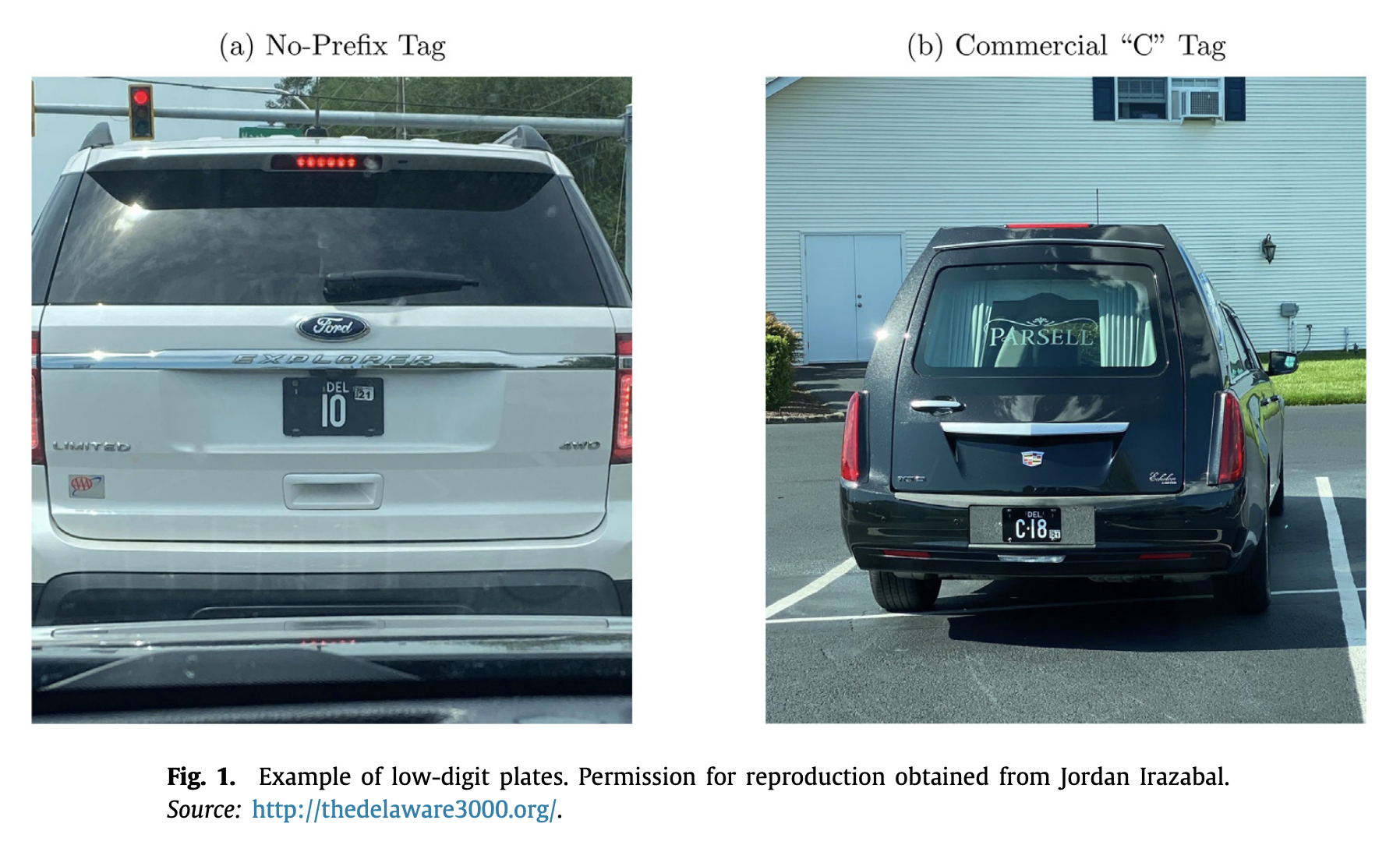
Given that low-number Delaware license plates serve no added utility, their vibrant secondary market provides the perfect condition for isolating the value of status. To this end, a research team including Rice Business professors Alex Butler, Bruce Carlin, Alan Crane and James P. Weston analyzed data from over 800 Delaware plate sales.
Averaging the sales, they found that non-commercial five-digit plates sold for around $870. Dropping a digit bumped the average to nearly $11,000. Dropping another two digits skyrocketed sales to an average of $212,000. These price differentials aren’t based on aesthetic appeal. And they do not correlate to vehicle quality. Very often, cars displaying low-number plates are worth far less than the plates themselves.
According to the researchers, these price jumps are due to the “conspicuous consumption” effect that emerges at each of the digit thresholds. The lower your plate number, the closer you are to being viewed as “old money,” politically connected and tremendously wealthy. The objects themselves are not worth much — what’s valuable is the message they send to others.
The Economics of Social Status
What happens during an economic slump? Surely, the value of low-number plates will decrease? On the contrary, the researchers found that the demand for these plates seems immune to overall market conditions. Prices remain constant, even during financial crises, hinting that for status buyers, money is no object. This suggests that the value of social status is seemingly independent from the ebbs and flows of economic life.
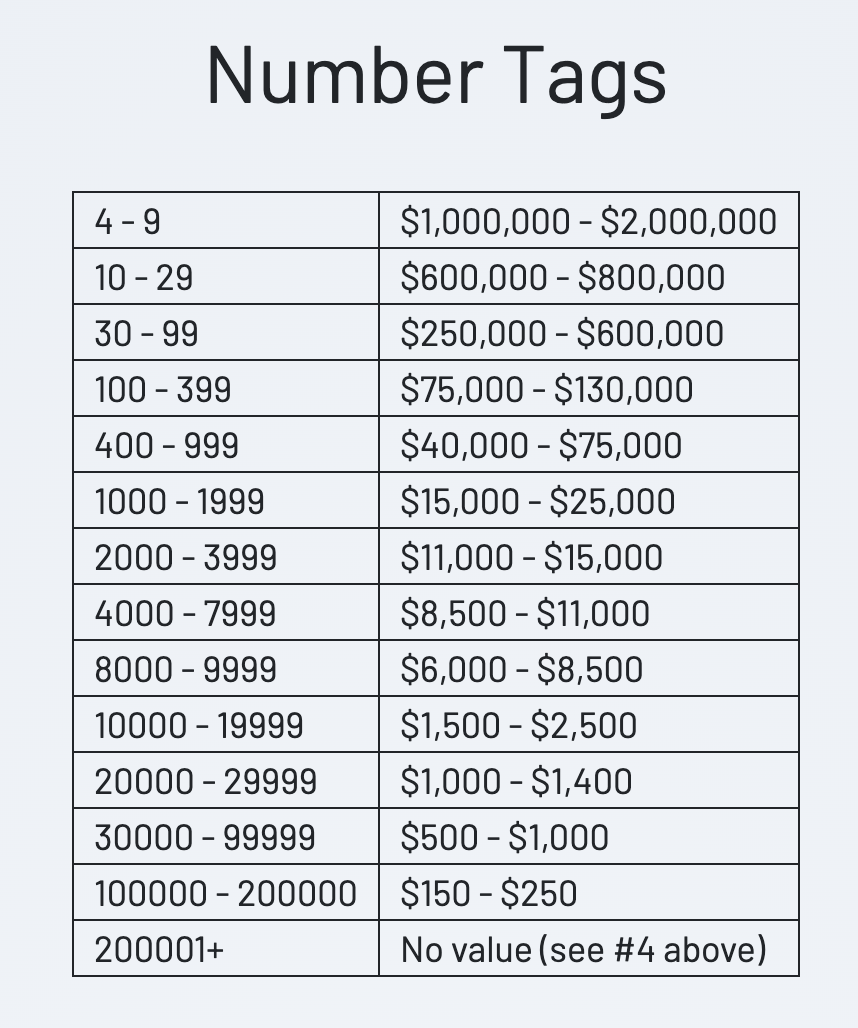
Values as of June 2025
The market for low-digit plates displays hallmarks of a Veblen good, where demand increases with price. Veblen goods are seen as an indicator of prestige and exclusivity. Their high prices are not necessarily driven by any inherent usefulness or material value. Rather, high prices make a good more exclusive, conferring status on their owners as members of an elite group. The more expensive these plates become, the more desirable they are to wealthy consumers who see the price as a sign of high standing.
Aggregating the total market for Delaware tags, the researchers estimate that the sheets of metal numbered 10 (two digits) to 99999 (five digits) are worth roughly $227 million. This figure amounts to about 0.4% of the Delaware GDP — which doesn’t seem like much. However, the researchers reasonably infer that this number represents a small portion of total status spending.
After all, license plates are one of many ways that consumers can conspicuously signal their social rank. There are many more traditional methods, such as wearing luxury goods, joining expensive clubs and making large philanthropic donations.
Key Takeaways for Social Status Marketing
So, what insights could brands and organizations glean from the high-end market of low-number Delaware plates?
First, these objects empirically quantify peoples’ yearning for status. Plate prices reveal that buyers are willing to pay substantial sums to broadcast an elite persona. Brands and business owners should note these status-seeking dynamics when introducing new luxury products and services. Prestige pricing and scarcity tactics can make offerings seem more exclusive.
And second, the study suggests the economic value of identity for status-strivers. Social rank is prized across societies, regardless of price or practicality. Even during financial turmoil, wealthy consumers still covet symbols that convey elite membership.
Butler, et al (2021). “The Value of Social Status,” Economics Letters.
Never Miss A Story
You May Also Like
Keep Exploring
Provost announces newly promoted and tenured faculty
Provost Amy Dittmar announced Rice faculty member promotions who demonstrated excellence in scholarship, teaching, mentoring, service and leadership. Promotions are effective July 1.
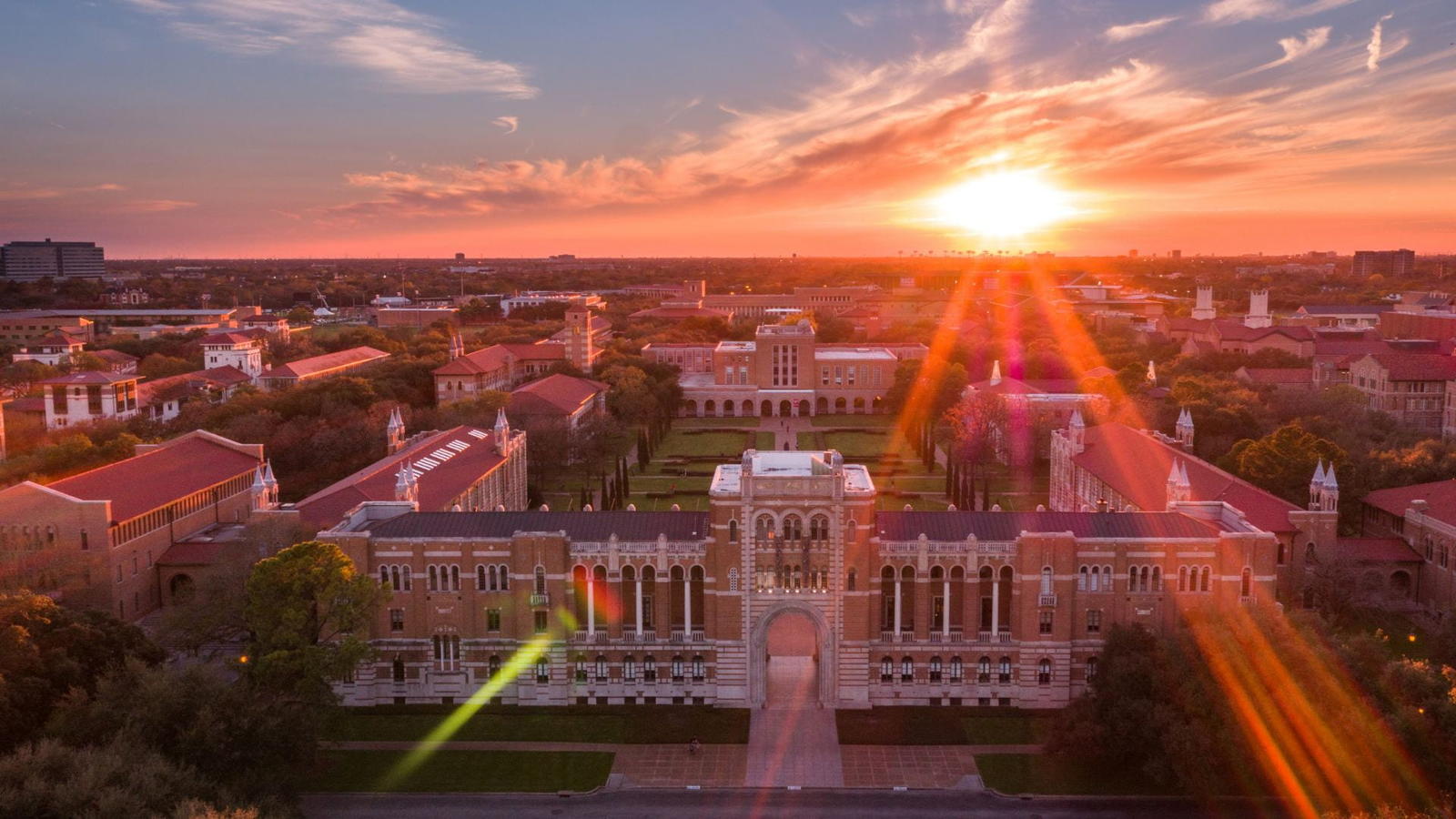
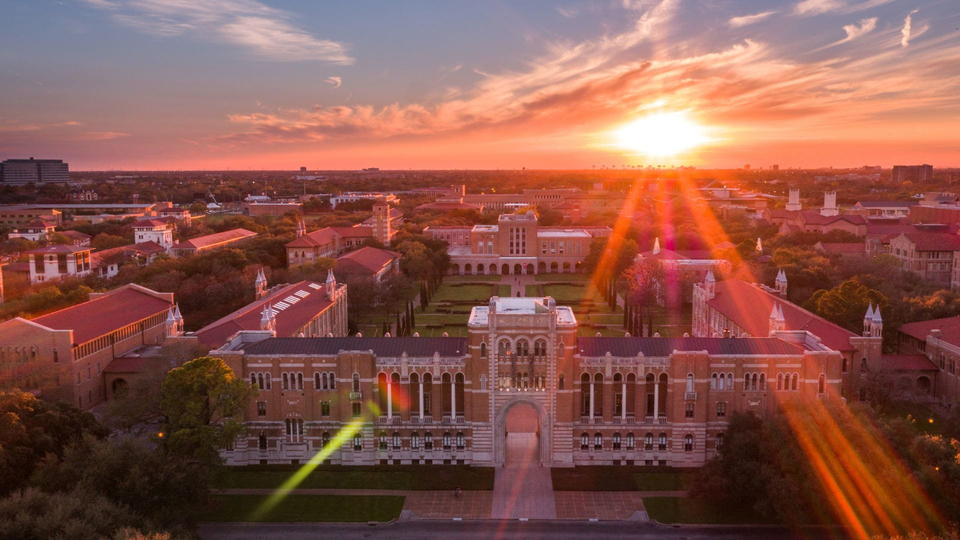
Provost Amy Dittmar shared the following message today with the Rice community:
The end of the academic year is a special time as we celebrate all that we’ve accomplished as a community of teachers, researchers and scholars. Today, I am especially pleased to announce and honor the faculty members who have recently been promoted or tenured.
Tenure recognizes faculty members' achievements in scholarship, teaching, mentoring, service and leadership at Rice and in their professional communities. Promotions and tenure are effective July 1.
Please join me in congratulating the following faculty. Other candidates are still being reviewed at this time, and we look forward to congratulating them in the fall.
Promotions to professor:
Daniel Cohan, Civil and Environmental Engineering
Peter Loewen, Shepherd School of Music
Peter Lwigale, BioSciences
Shiqian Ma, Computational Applied Mathematics and Operations Research
Aditya Mohite, Chemical and Biomolecular Engineering
Omid Veiseh, Bioengineering
Yuji Zhao, Electrical and Computer Engineering
Promotions to associate professor with tenure:
Rossella Calvi, Economics
Jesse Chan, Computational Applied Mathematics and Operations Research
James Chappell, BioSciences
Jing Chen, Psychological Sciences
Christina Diaz, Sociology
Jeremy Fiel, Sociology
Melodie French, Earth Environmental and Planetary Sciences
Isaac Hilton, Bioengineering
Eric Huntington, Transnational Asian Studies
Matthew Jones, Chemistry
Danielle King, Psychological Sciences
Yunmi Kong, Economics
Daniel Kowal, Statistics
Anastasios Kyrillidis, Computer Science
Brandon Levin, Mathematics
Meng Li, Statistics
Alessandro Piazza, Jones Graduate School of Business
Akane Sano, Electrical and Computer Engineering
Santiago Segarra, Electrical and Computer Engineering
Thomas Senftle, Chemical and Biomolecular Engineering
Lauren Stadler, Civil and Environmental Engineering
Christopher Tunnell, Physics and Astronomy
Rosa Uribe, BioSciences
Ming Yi, Physics and Astronomy
Promotion to research professor:
Pablo Yepes, Physics and Astronomy
Promotion to teaching professor:
Scott Solomon, BioSciences
Promotions to associate teaching professor:
Cassandra Diep, Kinesiology
Risa Myers, Computer Science
Amanda Perkins-Ball, Kinesiology
Anne-Marie Womack, School of Engineering
Carissa Zimmerman, Center for Teaching Excellence
You May Also Like

Rice University’s Jesse H. Jones Graduate School of Business today announced the launch of its Graduate Certificate in Healthcare Management program, a 10-month, credit-bearing professional credential designed for current and aspiring leaders seeking deep expertise in the business of healthcare.
Takeaways from CHARGE Conference
MBA students attended the North America CHARGE Energy Conference and shared takeaways from their experience.
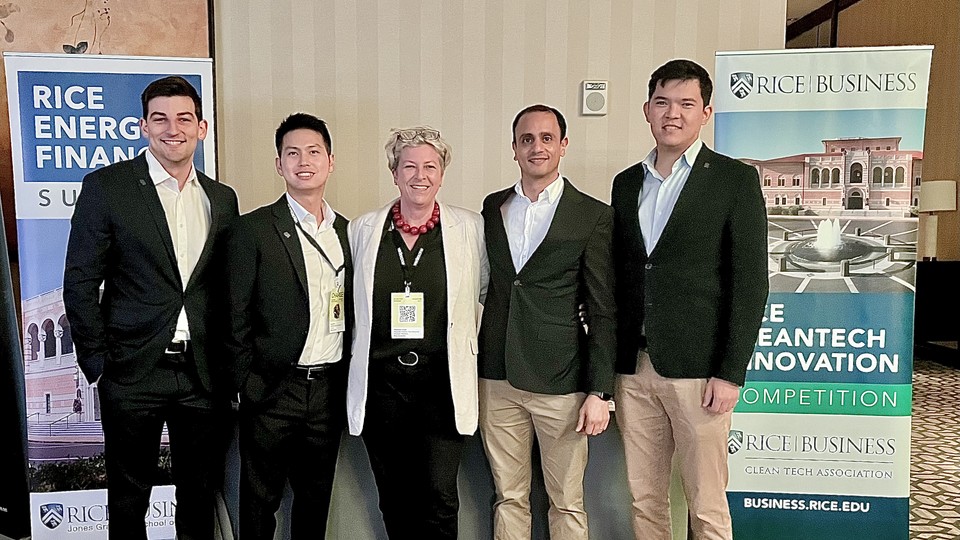
Rice MBA students attended the 2024 North America CHARGE Conference — an annual program for global energy brands. Hundreds of business executives from around the world gathered to learn about the best practices and technologies for adapting to sustainable energy transition. Below, our students share key takeaways from their experience.
What are the latest insights and trends in the energy sector? How can young professionals apply these practices to their studies and career development?
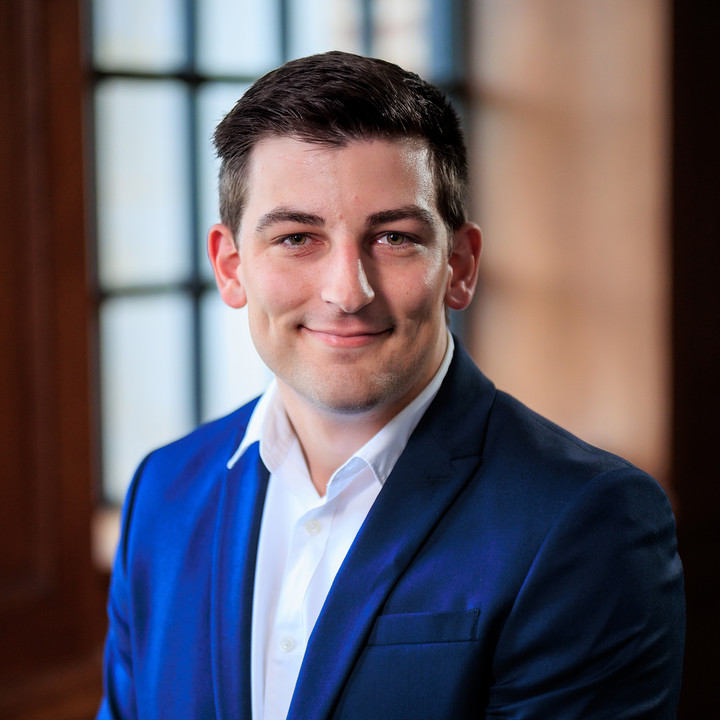
Strategic communication and branding are crucial for bridging the gap between marketing and engineering.
- Branding builds value by helping energy companies connect to existing customers and grow their customer base.
- The "not in my backyard" (NIMBY) syndrome, a phenomenon where people oppose the development of infrastructure near their own homes, is a growing threat to energy development. Good branding can help overcome this challenge.
- Effective communication strategies are necessary for marketers to engage with engineering-driven organizations.
- Marketing and branding strategies can be used to amplify the effectiveness of technical solutions.
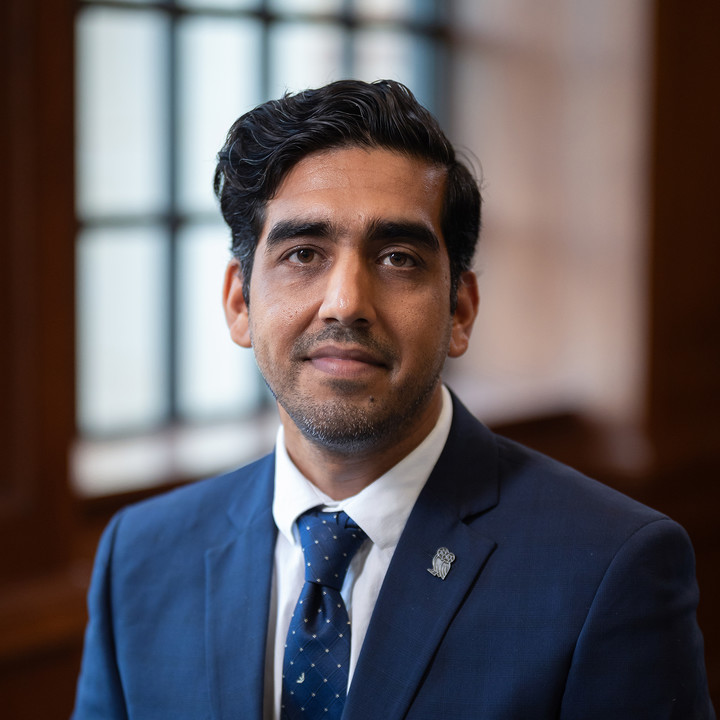
Behavioral science provides valuable strategies for understanding and influencing consumer behavior.
- Behavioral science can be used to reward and alter customers' buying behavior in the electricity retailing industry.
- Immediate rewards are more effective than delayed rewards in encouraging customers to switch providers.
- Major companies like Amazon and Netflix successfully utilize behavioral biases to influence consumer decisions. Professionals can similarly use these techniques to negotiate more effectively.
You May Also Like
Keep Exploring
Rice MAcc & Business Prerequisites
Read about the Rice MAcc’s “related business” course prerequisites.
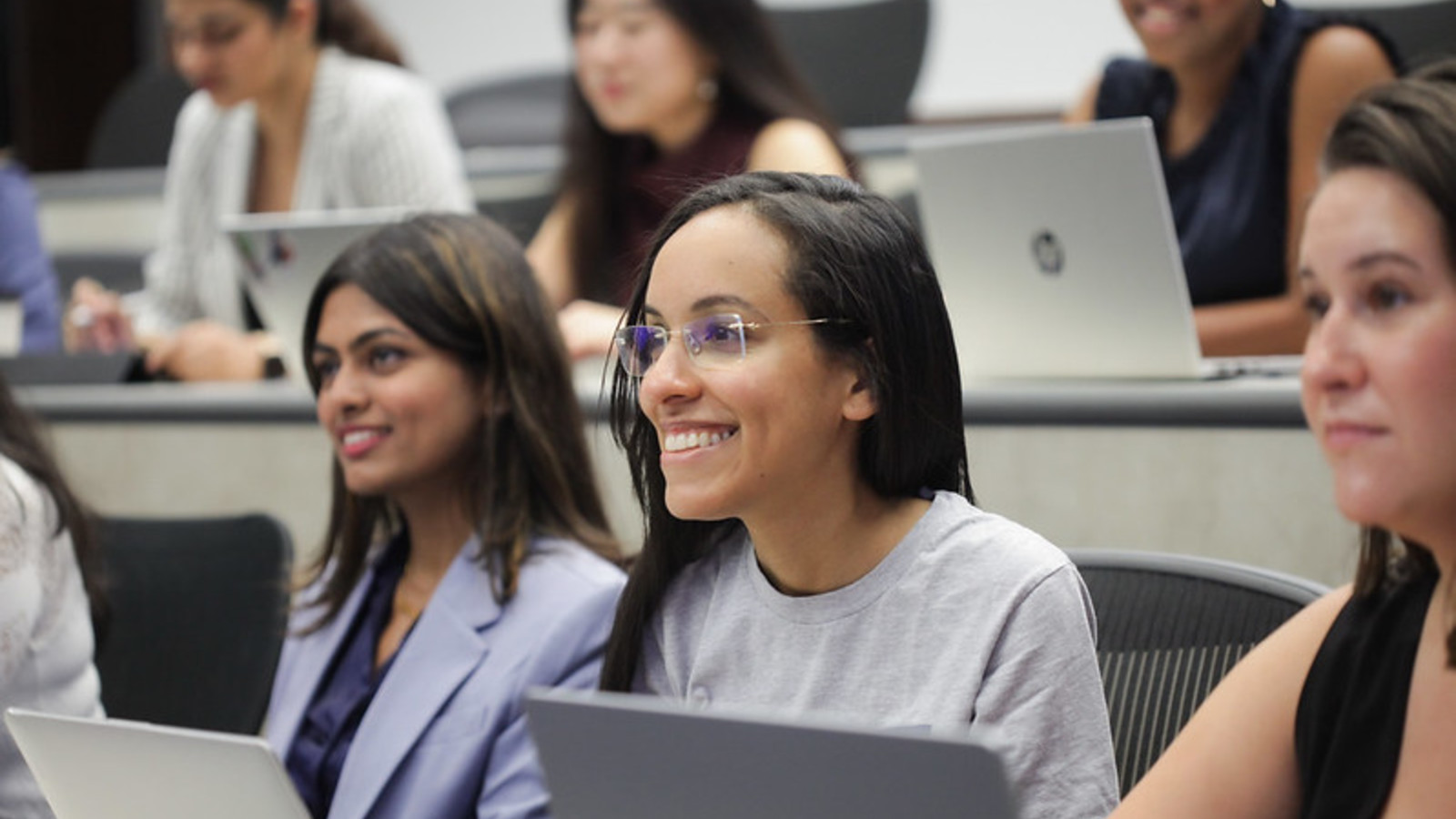
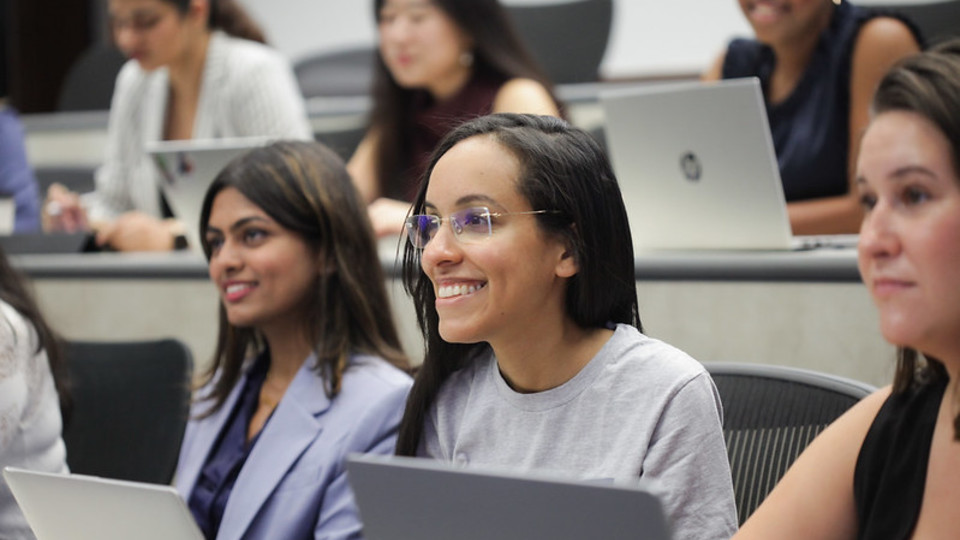
How to navigate the Rice MAcc business prerequisites.
Educational Requirements for a Texas CPA License
The Texas State Board of Public Accountancy (TSBPA) requires CPA candidates to complete 150 collegiate credit hours to sit for the CPA Exam. Of those 150 hours, 24 must come from qualifying related business courses.
The curriculum of Rice’s Master of Accounting program provides 9 of these related business credit hours. Therefore, incoming Rice MAcc students must have completed the remaining 15 credit hours before starting the program.
What are “Related Business” Courses?
Related business courses are non-accounting classes in business disciplines. The TSBPA groups these courses into the following subject areas:
- Business Law
- Economics
- Management
- Marketing
- Business Communications or Accounting Communications
- Statistics and Quantitative Methods
- Information Systems or Technology
- Other Areas Related to Accounting
- Finance
- Data Analytics
Two important caveats apply to these subject areas.
First, while courses in Economics and Statistics and Quantitative Methods may be taken at any course level, related business courses in all other subject areas must be upper-level courses (300-level or higher).
Second, the TSBPA allows no more than 6 credit hours from any one subject area to count toward the required 24 total credits, except for Finance and Data Analytics. In those two areas, up to 9 credit hours may be applied.
Keeping these caps in mind, carefully review your college transcript(s) to determine whether you have met the required 15 related business credit hours. Use the table of course requirements to account for the subject areas covered by the 9 related business credits in the Rice MAcc curriculum. For example, because the Rice MAcc program includes a 3-credit business law course, only 3 additional credits of business law taken prior to the program will count toward the “Business Law” category.
Interested in Rice Business?
Lacking Related Business Credit Hours?
If you have completed a bachelor’s degree but are lacking 15 related business credit hours, you can take TSBPA-approved related business courses from a community college before beginning the Rice MAcc program. Applicants are welcome to consult the Rice MAcc Director Prof. Ben Lansford about approved community college courses.
The Final Decision on Qualifying “Related Business” Courses
Remember, the TSBPA itself makes the determination about which courses they will accept toward the related business requirement. Therefore, the sole way to be certain you have will have fulfilled the related business coursework requirements upon graduating from the Rice MAcc is by having the TSPBA formally review your academic transcripts. The TSPBA calls this transcript review process the “Application of Intent” (AOI).
All incoming students should submit their AOI before starting the Rice MAcc. You can find the AOI form on the TSBPA website here.
Looking to Sit for the CPA Exam Outside of Texas?
Although the CPA Exam itself is the same across the country, the educational requirements to be eligible for the exam vary from state to state. If you are planning to take the CPA Exam in a state other than Texas, research the educational requirements in your state of interest and consult Rice MAcc Program Director Prof. Ben Lansford for guidance.
Visit https://www.tsbpa.texas.gov for complete details about the TSPBA’s educational requirements to sit for the CPA Exam. Also refer to the “program prerequisites” section of our Rice MAcc FAQs page.
We encourage you to reach out to us with any questions or to find out whether the Rice MAcc program is a good fit for your career goals. Click here for more information about our admissions process.
Keep Exploring
Charting the course of executive education
Rice Business is listed as one of the leading schools using distinguished faculty to teach open courses in executive education.
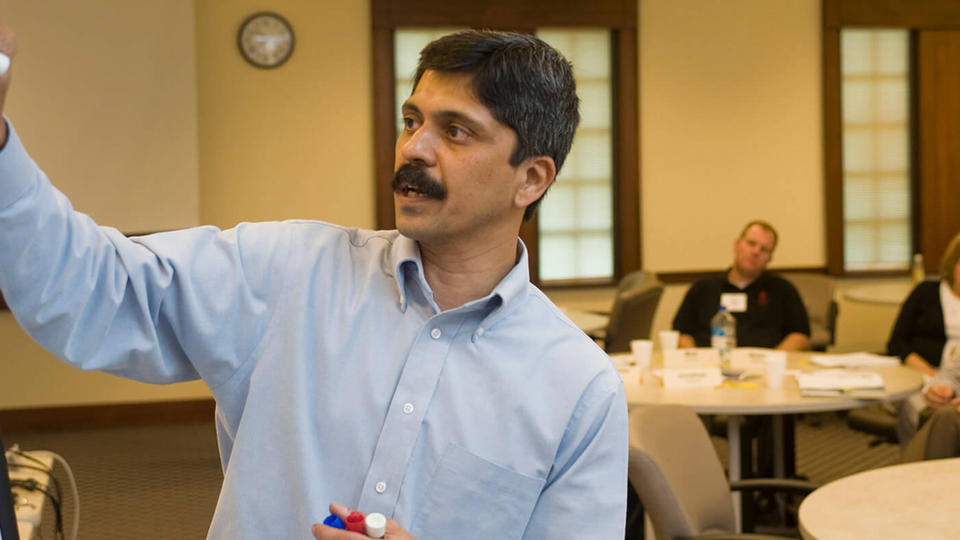
The MBA Student’s Guide to Well-Being
Here’s how to not only survive but thrive during your MBA program.
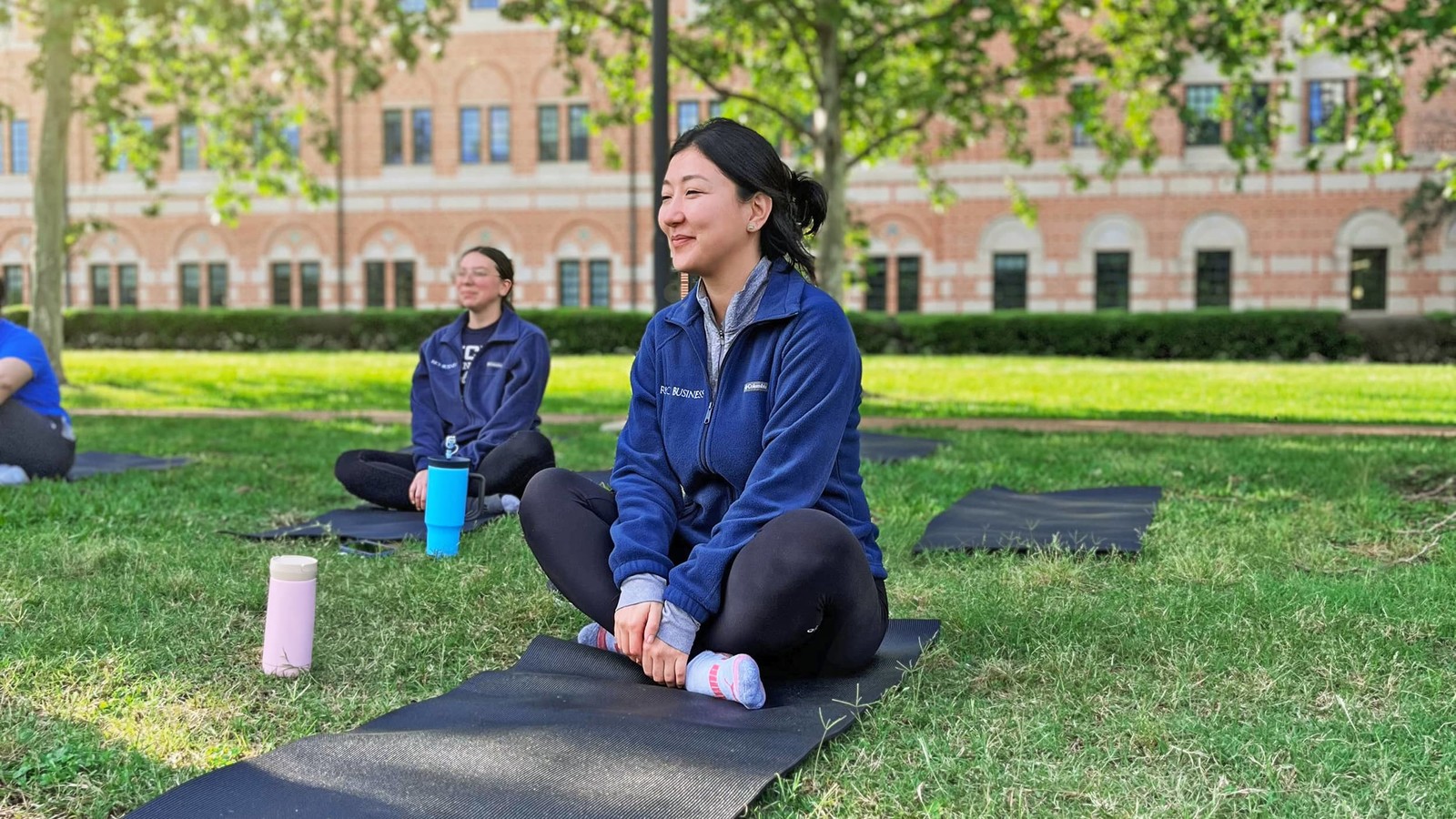
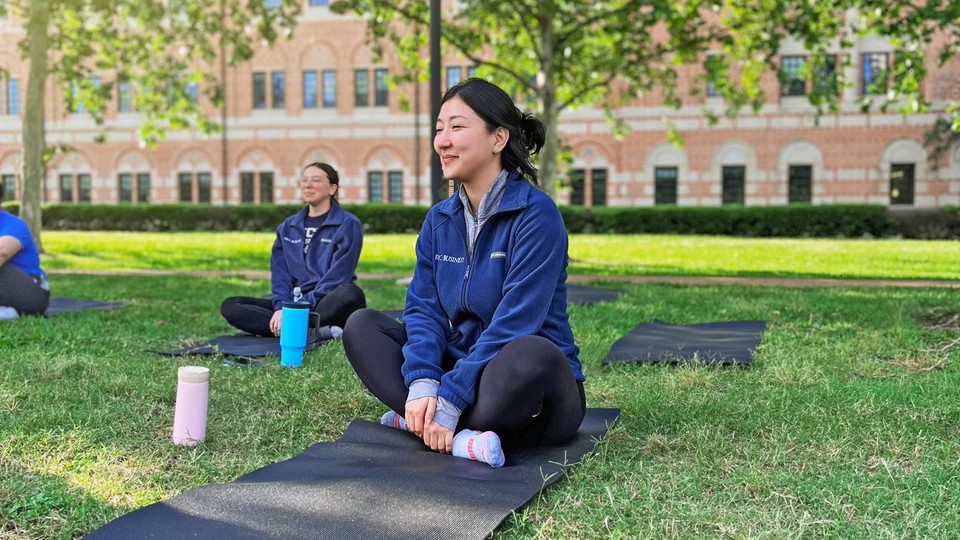
Here’s how to not only survive but thrive during your MBA program.
To call a top-tier MBA program “challenging” is like describing the Boston Marathon as “a bit of a jog.”
Just as marathons demand preparation and endurance, MBA programs require similar levels of resilience and fortitude. In addition to employment, family and community obligations, an MBA introduces the demands of coursework, exams, recruiting, networking and event planning.
In the whirlwind of competing priorities that come with pursuing an MBA, it’s all too common for physical, mental and emotional well-being to take a backseat. Yet, prioritizing wellness is non-negotiable for academic, professional and personal success. When you take care of yourself, you retain information. You stay focused in class. You increase productivity.
Here are key frameworks to help you prioritize well-being for success in your MBA and beyond.
Be S.M.A.R.T.
In the battle against burnout, effective time management is the MBA’s secret weapon. Without a solid system for prioritizing obligations, it’s easy to become overwhelmed and neglect self-care.
Your SMART goals for the MBA offer a useful framework for staying focused and organized. For a goal to be SMART, it must be:
- Specific — “Be an active member of the Rice Finance Association.”
- Measurable — “Maintain a minimum 3.5 GPA.”
- Achievable — “Continue an exercise routine while studying 15+ hours/week.”
- Relevant — “Build a network of senior analyst connections.”
- Time-bound — “Recruit for analyst roles in the summer before second year.”
Set your big-picture goals first. From there, begin breaking them down into smaller, short-term SMART goals related to individual classes, recruiting milestones, leadership commitments and personal priorities.
L.I.N.K. Up
Luckily, MBA programs are inherently social. You’ll constantly be working on group projects, joining student clubs and attending networking events. Your peers will become the people who empathize when you’re overwhelmed, celebrate your successes and motivate you to keep pushing.
That said, you still want to be proactive about making and growing connections. To do that, you’ll need to LINK up.
- Listen and learn. Approach each interaction with an open mind and a willingness to listen to other people’s experiences and perspectives.
- Initiate conversations. Start conversations and introduce yourself to people wherever you go.
- Nurture relationships. Plan hangouts where you can momentarily escape the academic pressure cooker.
- Keep in touch. Congratulate people on LinkedIn. Text an article you think someone will like. And submit your life updates to Class Notes!
And don’t overlook the relationships you’ll develop with professors, university staff and students in other programs. They can offer mentorship, insider advice and guidance for your post-grad plans. An invested network of diverse connections enriches your overall experience.
Interested in Rice Business?
Take it E.A.S.Y.
Telling MBA students to “take it easy” is a bit silly. Graduate school is the opposite of easy!
But this framework can help you remember what might happen if you don’t prioritize rest and self-care. Trying to power through while ignoring your needs can lead to burnout, anxiety and compromised well-being.
By creating intentional space in your schedule to replenish your mental and physical reserves, you will refuel your motivation, creativity and resilience for the marathon of your MBA journey.
- Embrace hobbies. Having a creative outlet wholly separate from your academics can provide mental refreshment.
- Avoid overload. Set boundaries to avoid overcommitting yourself and becoming overwhelmed.
- Schedule breaks. Use your calendar to proactively schedule restorative breaks. Make this scheduled downtime non-negotiable.
- Yield to needs. When you’re feeling depleted, yield to your body’s needs for sleep, water and nutrient-dense foods.
By prioritizing your mental and physical health, you are optimizing your capacity for growth and advancement. Think of it as investing in your long-term well-being.
You May Also Like
Keep Exploring
Innovating Out of a Crisis feat. Professor Scott Sonenshein & John Mangum
Season 4, Episode 16
How can organizations innovate their way out of a global crisis? Here's how the Houston Symphony Orchestra adapted during the COVID-19 pandemic.
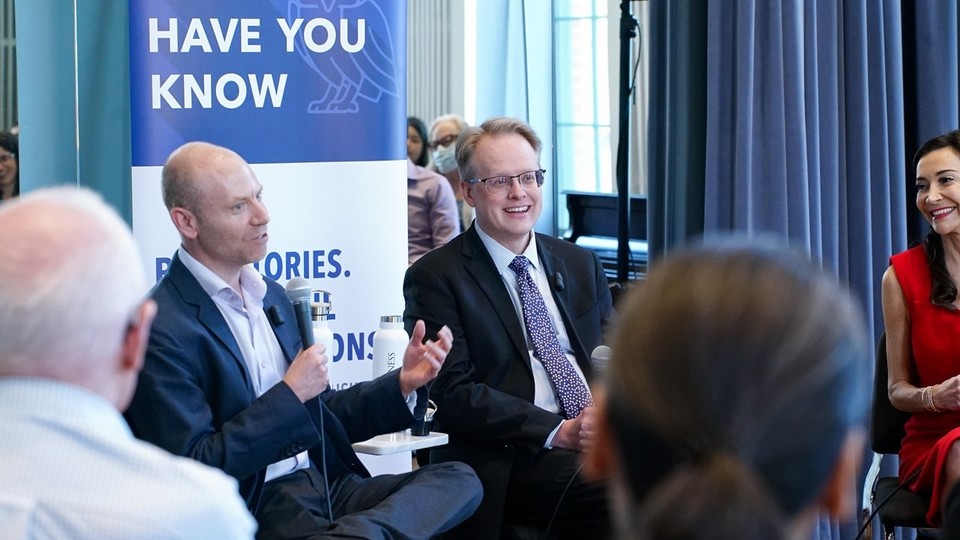
Owl Have You Know
Season 4, Episode 16
Eager to learn how organizations can innovate their way out of a crisis? You may be surprised that the key to this comes from an arts organization.
Tune into a special live recording of our podcast, with John Mangum, the executive director/CEO of the Houston Symphony, and Scott Sonenshein, the Henry Gardiner Symonds Professor of Management – Organizational Behavior at Rice Business.
During the pandemic, the performing arts faced an especially grave challenge beyond the shared difficulties with other industries: an existential crisis over the relevance of arts in times of extreme hardship. Professor Scott Sonenshein, a New York Times bestselling author and expert on how employees can create organizational, social and personal change, led a multi-year study of two prominent orchestras (including the Houston Symphony), resulting in a surprising insight with far-reaching applications. Resourcefulness is not just helpful for surviving adversity. It’s a strategic framework that enables organizations to become better versions of themselves.
In this conversation, John and Scott reflect on how the Houston Symphony transformed their operations and performance delivery during the pandemic, and how business leaders facing disruptions can benefit from critical changes Scott’s research uncovered.
Watch
Listen
Thank you to our guests, Scott and John, our host, Maya Pomroy '22, Vicky Dominguez and Alex Soares. Special thanks to Dean Peter Rodriguez for his introduction and the Shepherd Shool of Music for sharing their beautiful space for the recording event.
Check out Scott's Rice Business Wisdom article to learn more about his research on conflict.
Subscribe to Owl Have You Know on Apple Podcasts, Spotify, Youtube or wherever you find your favorite podcasts.
Episode Transcript
-
[00:00] Maya: Welcome to Owl Have You Know, a podcast from Rice Business. This episode is part of our Up Next series, where faculty, researchers, and alumni weigh in on the trends currently shaping the world of business. Make sure to listen to the full episode to hear an incredible performance from the Houston Symphony Quartet.
[00:23] Peter: Good afternoon, everyone. Thank you so much for joining us here in this lovely facility for a live broadcast of our award-winning, award-winning, yes, award-winning podcast, Owl Have You Know. There's no better name than Owl Have You Know. Thank you very much.
This is a great opportunity for us. I'm especially excited for today because we get to share some of the ideas for some original research done at Rice Business to talk about a great story of resilience here in Houston and a great lesson that can be applied very broadly around lots of different types of organizations. And to help us do that, we have three fantastic guests today. We have John Mangum. So, John is at the back. You can make your way up here to the front.
Very happy to have John, who's the executive director, yes, the CEO, and Margaret Alkek Williams Chair of the Houston Symphony. A wonderful warm round of applause for you, John. Thank you so much. Previously, he's held senior artistic planning roles at the San Francisco Symphony, New York Philharmonic, and the St. Paul Chamber Orchestra. And he has stewarded the Houston Symphony through some really interesting, tough times.
And he's the subject, and a great subject, of this research. So, welcome, John. Happy to have you here. We're also joined by Rice professor, Henry Gardiner Symonds Professor of business, Scott Sonenshein. Scott's done everything special at Rice. He wrote a great book called Stretch, which you may remember. He had a great book called the Joy at Work with Marie Kondo. It launched not long after, four years ago on a day much like today.
I called Scott, who was the very first professor to whom I had to give the message that, "Sorry. There's a COVID pandemic. You have to pivot your class from in person to not in person. And you're the perfect person to do that because all your research is about this topic." And Scott did a famously beautiful job of that.
And of course, we have a great podcast host in Maya Pomroy, a journalist with great experience in front of the camera, behind the camera, everywhere, and most importantly, a Rice MBA. So, we're really delighted to have Maya here. Maya, thank you. And thanks to all of you. Thank you to Dean Matthew Loden and everyone here at the Shepherd School of Music for allowing us to use this lovely space. And now, on to the show. Take it away, Maya.
[02:39] Maya: Thank you. Good evening, everyone. We are really thrilled and delighted to have you here this evening. My name is Maya Pomroy. And I will be your host. And as Dean Rodriguez said, this is a wonderful opportunity to really showcase an extraordinary event that happened right here in Houston. We are an award-winning podcast at Rice Business, something that we're very, very proud of, yes, Owl Have You Know.
So, I think that most of us remember, in the spring of 2020, and all of us would probably like to forget, how the world just stopped. Everything paused. Business stopped. Education stopped. Traffic stopped, which was good and bad. And the music stopped, but just for a little while, just for a little while at the Houston Symphony. So, if you're interested and curious about how to innovate during a time of crisis, you've come to the right place.
And thank you so much for coming. During the pandemic, the performing arts industry really went through a lot of issues and was grappling with not only an economic downturn, but also an existential question of the role that the performing arts plays in society during a time of crisis.
And at that time, Professor Sonenshein had taken on doing this amazing, groundbreaking, multi-year study on of the Houston Symphony about its innovation, about its resilience, how not only it survived, but also how it thrived. And what he found was really fascinating. Resourcefulness isn't just, isn't just something that you use to survive.
It's actually a strategic framework that can be applied across the board, across all industries, which is really fascinating and breathtaking. So, that is what we're going to discuss this evening. We're going to dig into Scott's research. We're going to talk about all of the incredible things you did as a leader at the Houston Symphony. And we are also, at the end, we have quite a treat.
We've got members of the Houston Symphony that are going to be performing for us. So, without further ado, I would love to jump in. And I'm going to take a seat over here. And I'd love to start with you, Scott. So, what made you interested and curious and passionate about studying organizational change? And also, what led you to really do this study about the Houston Symphony?
[05:33] Scott: Well, thank you. And thank you for having me on the podcast. Organizational change is something that I've been studying my entire professional career. And it really started out before I was an academic. I worked at a, at a time, a high-flying startup organization in Silicon Valley. And I got out there right during the peak of the dot-com boom. And what I saw was, you know, it's, kind of, like, pandemonium of, you know, all of the excess out there.
And, you know, being a young 20-something-year-old at the time, it was, kind of, exciting to be out there at that time. But what I quickly realized is that this was not a sustainable way of doing things. And as, kind of, the free flow of cash stopped coming in from venture capitalists, we were basically exposed for what we were, which was basically a business without a purpose. And I saw a lot of...
[06:17] Maya: We don't know any of those.
[06:18] Scott: Yeah. Well, certainly not from our students. And I saw, I saw a lot of terrible mistakes in terms of how change was being implemented, practices that were really making a very difficult situation far worse. And so, that inspired me to get my PhD and really understand resourcefulness, which is essentially, you know, how do we use the resources that we have in more effective ways versus just squandering what we have?
Because my company I was at squandered a lot. And I've spent my career trying to study organizations, like what the Houston Symphony did, that have found ways, remarkable ways, I would add, of taking what they have and making the most of it.
[07:10] Maya: Is that business still in... I'm just kidding. I'm not going to put you on the spot [crosstalk 00:07:16].
[07:15] Scott: No, we were, we were definitely out of business. I remember the day bringing my certificate of shares that, at the time, were worth probably millions into my class and saying this is worth zero right now. That's why you should take this class seriously.
[07:32] Maya: Well, overvalued. A bit of an overvaluation. So, tell me about the Houston Symphony. What drew you to that? How did you meet?
[07:41] Scott: Yeah. So, this is, kind of, a story that almost takes us full circle to resourcefulness. So, it's during the pandemic, and it's the beginning of the pandemic, and most of my research is ethnographic and in the field, which means I spend my time embedded in organizations, trying to understand how they work. And that was hard to do during the pandemic. And I was, kind of, struggling to find, you know, a place to study.
Well, as Peter mentioned in the introduction, I was still teaching at the time. And all of our teaching was done online. And I had this exercise I was doing. It's called the Reciprocity Ring, which is a way of just, kind of, showing how the world is smaller than we might imagine it would be, and that people who, when we ask for favors from someone, chances are these could be granted even if they're pretty extreme. And so, I'm teaching a class.
And I have, I think, a student happened to be out sick that day probably because of COVID. So, I asked my faculty assistant to, kind of, play this game because I needed a certain number of students for this exercise to work. And it turned out that she was the one that granted my favor.
My question was, you know, I'm looking for a field site, preferably in the performing arts space, where they're, you know, able to, you know, kind of, still keep playing, do something pretty remarkable. Do you know anyone? And do you have any connections? And that got me to someone in PR at the Houston Symphony. And that, kind of, launched this whole thing.
[08:56] Maya: So, it was really serendipitous, your meeting.
[08:59] Scott: Well, it was serendipitous in the sense that the Houston Symphony was not on my radar, but it wasn't serendipitous because the purpose of the exercise is to exactly show that, that what seems like serendipitous encounters and, kind of, you know, questions that you would never think you can get fulfilled actually, in your network, actually can fulfill those. And so, it was serendipitous in that sense, but predictable in another sense.
[09:29] Maya: And so, and so, good answer. So, in terms of the performing arts, what was it about the performing arts that you really wanted to dig in and study?
[09:40] Scott: Well, the performing arts was an industry that had, I think, about 65% unemployment at the inception of the pandemic. This is an industry that, you know, you couldn't congregate, so you couldn't practice. You couldn't have people in your performance spaces. And a lot of their employees are highly skilled, but with very specific skills that are non-transferable to other industries.
And so, I was looking for strong adversity where an industry was facing even more than the typically extreme adversity that other companies or other industries were facing. And so, I started with Broadway professionals. And I started interviewing them. And I thought that was really exciting because I like Broadway, but they were all closed.
And they were doing nothing, nothing interesting. And that was, kind of, the struggle. It's like, you know, who is there really left to study? And in fact, most performing arts organizations, including most symphonies, weren't doing anything. So, it happened to be, there's, I guess, one form of serendipity that the one of the few organizations that was still playing happened to be in my hometown in Houston.
[10:44] Maya: So, John, now, we're going to move on to you.
[10:48] John: Okay.
[10:49] Maya: So, it's the spring of 2020. Tell me what you thought right when... because I think all of us, we were like, "This is going to be over soon." I mean, you know, I have a friend who's an epidemiologist. And I was like, "May, right? We're going to be done by May." We weren't done by May, right? So, when all of this started to happen, and things started to shut down, what did you do?
[11:14] John: So, we initially also shut down. And I remember we were rehearsing a big piece with the chorus and the orchestra, six vocal soloists, and we started to see a lot of attrition from the chorus because you might remember some of the early news stories that were coming out about the pandemic were coming from... I remember specifically there was a chorus in Washington where there was a news story about how a bunch of the members of the chorus-
[11:41] Maya: Got sick?
[11:41] John: ... had caught COVID. And so, we started to see this attrition. It felt like several orchestras, almost on the same day, in the middle of March of 2020, decided to shut down that week's rehearsals and performances and send everybody home. And so, that's what we did. And I would say that, at first, like you said, we were planning on, oh, okay, we're going to have a big reopening, welcome everybody back in May or June, this, sort of, thing.
We thought it would be much more transitory than it was. And it became apparent fairly quickly with the advice coming from the CDC and also Houston Methodist Hospitals, our healthcare partner, and we have a lot of access to doctors there, and they were also giving us advice, and finally, the City of Houston Health Department, that this was going to be something that would extend much longer than just a couple of months.
[12:34] Maya: So, what did you tell your musicians?
[12:38] John: Well, the first thing we did was, I remember, we sent everybody home, and then we realized that we weren't going to have ticket revenue coming into the organization. And that's about a third of our revenue.
[12:49] Maya: That's a problem.
[12:49] John: And, you know, about two-thirds of our costs are actually staff and musician salaries. So, we started talking with our musicians about taking a temporary wage cut. And that was something also that was going on nationally. So, we weren't alone in having that conversation. And that broader context made it, I think, an easier conversation to have.
And we also started talking about, not immediately, kind of, once we'd gotten through the initial, sort of, couple weeks of just realizing that we weren't going to be back at the end of May, we started talking about what we could do, what we could do. Just what can we do? Because we're not sure we can get together.
We're not sure we can, we can do things business as usual. And I think we rallied around a couple of clear, sort of, I don't know, points that allowed us to organize our thinking. One was that really, you know, like you said, non-transferable skills. I like that. You know, this is a group of incredibly skilled, incredibly gifted musicians. And so...
[13:51] Maya: That thrive on performing.
[13:53] John: Exactly, and on performing for an audience, on performing with other musicians. So, you know, how does that function as an organizing principle? And also, that what we do has value.
You may remember, and even now, you still see, kind of, a hangover, but in the early days of the pandemic, the internet was flooded with musicians recording themselves on their iPhone and people editing it together where you'd have 40 musicians playing a little snippet of Beethoven and in their Zoom windows edited together. And all this was, kind of, being dumped on the internet. And it was free, but we really wanted what we did to have, to have some value assigned to it. So, a way to generate a little bit of revenue, right?
[14:55] Maya: Right.
[14:55] John: So, those were the two principles around which we, kind of, organized our thinking.
[15:00] Maya: And so, you were studying this while they were doing this?
[15:02] John: Right.
[15:03] Maya: Okay. So, tell me about that. So, because it is, it's a, it's a very personal and intimate experience to go to the symphony, to go to the ballet, to go, you know, to the opera. So, what were you thinking while they were trying to pivot and transition?
[15:20] Scott: Yeah. So, one of the great things about doing real-time research is you have no idea what the ending is going to be like. And, you know, on the side, I was, I was rooting for you, but, you know, I didn't know. I mean, it was, it was, kind of, hard to know how this was going to turn out. And in the study, of course, there's a second symphony organization that we were looking at, that was very much on the, on the verge of going under at the time.
And as we're, kind of, comparing the two organizations, that's when the contrast really started to shine. When you got to see an organization that was relentless in determining to keep playing and keep the music going no matter what form that looked like. You saw a lot of innovation and creativity in finding ways not to just put online what they were doing before, but to really reinvent what they were doing so it would be suitable for the format that they can play in.
And that's why, you know, you saw a lot of the Zoom symphonies and the little boxes, but what the Houston Symphony did was really bring musicians into the homes of their audience. And that created a lot of new experiences for their audience. It also grew their audience, of course, because they were one of the few, if not the only, organization that was thinking this way.
And so, for me, and someone who spent their career studying resourceful behaviors, I started getting extremely excited because I'm like, "This is, this is an exemplar of what I've been studying for so long under such difficult circumstances." And it was really remarkable just to, kind of, have a, have a backseat and watch this thing unfold.
[16:55] Maya: So, what gave you that idea?
[16:58] John: So, really, you know, going back to those two organizing principles that I described, we started to formulate an idea of inviting our audience into the living rooms of our musicians. And we specifically targeted musicians who we knew lived with other musicians because, again, it's about making music together. And, you know, many of our...
[17:27] Maya: And this [crosstalk 00:17:27].
[17:27] John: Exactly. And, you know, this idea of the bubble. We all remember the bubble-
[17:34] Maya: Yes.
[17:34] John: ... and admitting people into your bubble, and this, sort of, thing. So, sending a camera and a microphone out to the homes of musicians, and every Friday night, having them prepare. They had carte blanche. They could play whatever they want. They could talk about it.
And the very first one was beautifully done. It was our principal keyboardist, Scott Holshouser, who has been with the orchestra for many years. And his wife sang in our chorus. And his son was a Broadway theater performance singing at HSPVA. And so, you had this wonderful-
[18:06] Maya: Group of theater.
[18:07] John: ... group of, exactly, musical theater. You had this wonderful group of three musicians living together. And they told stories. And they sang German art songs. And, you know, Scott's wife would read the text in English. And his son would sing the art song. And Scott talked about how his piano, which we were seeing on the screen, had traveled around the country with him.
And he'd bought it, you know, 40 years before. And so, we were getting these wonderful stories. And it was a completely different experience than you get coming to Jones Hall to hear the symphony, but it was people making music together and us charging the audience a small, you know, fee to get to experience that specific, that specific performance.
[18:43] Maya: Did you have wait lists?
[18:45] John: No, because it was online. As many people-
[18:47] Maya: Okay.
[18:47] John: ... as wanted could come. And so, we had, you know, we had a really good size audience. And that transitioned into us, you know, starting to live stream performances. So, the city let us get back in our hall for the Fourth of July weekend. And over the course of the summer, we could get the orchestra together in small groups sitting apart.
And that was another thing that Rice was instrumental in doing. We worked with the engineering school on an aerosolization study. And they actually used high-speed photography to capture images of our musicians while they were playing so you could see where the aerosols were coming out of their mouths and out of their instruments so that we could configure them safely on stage in a way where they wouldn't be getting each other's mist. Amazing.
[19:42] Maya: Do they still think about that today when...
[19:44] John: So, I don't know. Whenever somebody coughs or sneezes, everyone, kind of... I think that's just the way life is now. But, you know, getting the orchestra back on stage, live streaming those performances. And we still have about 1,000 households watching our live streams every weekend. So, we developed this new stream of Revenue, new business line, that came out of the pandemic and has stuck with us as a wonderful audience development tool.
[20:04] Maya: Now, were there other symphonies or other organizations that wanted to do that as well?
[20:08] Scott: I mean, there were a handful of other organizations that were doing this, but none really, I think, to the extent that the Houston Symphony was. For the first year of the pandemic, many other orchestras were completely closed. I mean, they were not performing in person. They were not having paid live streaming.
And so, what you saw, really what the Houston Symphony was doing, was creating, essentially, new products. And you think about how rich those products are that John just described. Those are products that you presumably could have created before the pandemic, but it was only because of the constraints and how those limitations forced you to think differently.
And that's really the power of resourcefulness, and why it becomes a strategic asset, not just a defensive strategy because it gives us permission to do things unconventionally. And with those unconventional thoughts, we have the opportunity to go beyond, you know, regular performance and reach exceptional performance.
[21:06] Maya: And you had said that they were different kinds of pieces that the musicians were playing. So, can you elaborate a bit more about what those were? And because, you know, you're given a bit more agency to choose because, you know, you have an opportunity to go outside of the box.
[21:35] John: Absolutely. And there was a confluence of factors that led to that outcome. The first was that, even when we had our largest possible audience during that pandemic season, it was only about 400 or 450 people in Jones Hall, which, at the time, sat 2,900. So, and that was because households had to sit together and then be a certain distance from anyone who wasn't in their household, back to this bubble idea.
So, we weren't under pressure to sell tickets. And so, that gave us the ability to program whatever we wanted. You know, you didn't have to do a certain number of Beethoven symphonies, and you didn't have to do Star Wars in concert, and the, kind of, things that sell tickets. So, we could really explore all kinds of repertoire.
The second factor was the George Floyd protests in the summer of 2020 really made us aware as an organization that, historically, we had not been representing Hispanic, Black, women on our stage with our programming. We'd been sticking with a lot of the, kind of, White European male canon. And I have to give credit to our director of artistic programming, Rebecca Zabinski.
She really took on learning about this repertoire and making sure that we programmed it in a really robust way. And that's something that's actually continued on in our programming since then. And then the third piece was we were limited in the number of musicians we could put on stage.
You know, typically, we have 90, 100, 105 musicians on stage for Houston Symphony Concert. Our, kind of, maximum configuration because of the distancing was about 35 on that stage that normally seats 100-plus. And so, that also meant exploring chamber music repertoire.
And we, kind of, opened it up to musicians to suggest some things. And it really, it really developed all of these, sort of, skill sets about collaboration and exploration that, again, absent the pandemic and absent the George Floyd conversation, we probably would never have really found out about ourselves.
[23:48] Scott: Yeah. And I mean that story about moving to more diverse repertoire is pretty significant, especially you think about being in a city like Houston that is so diverse and thinking about what, kind of, the standard symphony fair is. You know, it is, it is very non-diverse.
And to think that it was the constraints of the pandemic, and then using those constraints as a way of making a very important change that better reflects the community shows, you know, not just about surviving the pandemic, but more positively transforming because of it.
[24:28] Maya: And thriving. And really, they're blessings in disguise, I think, is what we can, we can label them. I know it's a little tight, but a blessing in disguise because had that not happened, you would never have embarked on something so creative and innovative, and really made the Houston Symphony stronger because of it. And so, my other question is, you know, how did your musicians respond to this, sort of, change, you know?
[25:01] John: Well, so, we were very...
[25:05] Maya: Some of them are here. I guess they could probably answer.
[25:06] John: And they'll be performing for us later, actually, a piece by Fanny Mendelssohn-
[25:09] Maya: Yes.
[25:09] John: ... one of these composers that we, kind of, uncovered through that work. And they were very collaborative, incredibly collaborative, also our board and all the resources in the community. I mean, I don't think we would have been able to do this anywhere but Houston because we had... you know, I talked about the Rice Study, I mentioned Methodist, Houston Health Department.
Our board of directors had a lot of different, kind of, access and helped us navigate some things. But the musicians were wonderful partners, and continue to be, but they really were open to having a conversation with us about, you know, what we could do, what safety measures would be in place, and also doing it in a way that brought people along. So, while, initially, for that July 4th concert, not everybody was-
[25:56] Maya: Willing?
[25:56] John: ... feeling like it was a great idea to come in and gather with a bunch of people and play music, we created a, sort of, a, sort of, scenario where people could participate on their own timeline. And I think that helped.
You know, by the end of the pandemic, I think we only had one... not the end, but by the, by the time the, sort of, restrictions and safety things had been lifted, I think we only had one musician sitting out. And it was for a very particular and completely understandable, you know, circumstance that was specific to them.
[26:36] Maya: Well, and that says a whole lot about the kind of leader that you are, is to allow people, you know, to do what they are comfortable in doing, you know, and to meet them where they are because different people, even today, feel very differently and have different circumstances and, you know, things there were people with pre-existing conditions and everything else.
And, you know, that kind of leadership is really what I think stands out. In comparison, and I'm not sure how much you can share about the other symphony that you, that you study, but is that one of the key components is the type of leadership that they have?
[27:10] Scott: Yeah, no, leadership played a big role here. So, the other symphony that we studied is we matched them on just about every other criteria except the fact that they were not playing. So, they were similar size and revenues, similar political environment, similar COVID restrictions. So, we tried to normalize everything except what they were actually doing.
And one of the remarkable things about leadership that we discovered in this study is just comparing the data that came in from employees, staff, and musicians, between the two symphonies was just night and day in terms of what they were saying about leaders, the type of trust that was developed in the Houston Symphony, versus at the, at the other symphony, there was a complete lack of, lack of trust.
There was no communication between the musicians and the management team. The management team seemed to be completely clueless to the, to the pain and suffering of the musicians. I mean, John had talked about, you know, how these people just have this innate desire to want to perform and want to congregate with people. And there was a lot of, kind of, sadness in this other symphony that could not deliver that experience for their staff. And then, of course, there was also the economic hardship. And they were...
[28:27] Maya: And trauma, on top of trauma, on top of trauma.
[28:30] Scott: Yeah. Also, you know, furloughed the staff. I mean, there was someone in our sample who had sold their instrument, which, I mean, if you think about, you know-
[28:44] Maya: That's [crosstalk 00:28:44].
[28:44] Scott: ... how...
[28:45] John: Cutting off your arm.
[28:46] Scott: Yeah. I mean, and it's reflective, I think, of just the lack of faith that this other symphony members had of their management team and their leadership compared to Houston, you know, all of the comments where, you know, "We have a great leader who, you know, understands the perspective that we're coming from and is going to find a way to, you know, have us open and have us play no matter what." And that's exactly what they did.
[29:15] Maya: So, in your study, you talk about it being more of like an improvisational jazz band, right? So, can you, can you talk a bit about that? I don't know if you have all had an opportunity to read the study. If you haven't, it's phenomenal. It was published in the MIT Sloan School. And I'm sure that we can get you a PDF if you'd like. But go on and tell me about that, sort of, analogy.
[29:39] Scott: Well, this, kind of, became an organizing metaphor for the, for the findings. If you think about a symphony, not only are, you know, they playing orchestral music, but in many respects, they're organized like a symphony in terms of its management structure, which is how most businesses are organized, too. It's very hierarchical. This is an organization that, I'd say, is used to planning in years.
So, you know, very long-term planning, clear role differentiation in terms of responsibilities, lots of scripts. So, you have your sheet music, your routines, and your practices. And what was so remarkable about this experience is not only is this an organization used to making this music and used to being structured like this.
They went completely jazz, not in their music, but in terms of how they organized. And to get into that mindset of being able to improvise, to go from an organization used to planning a season a couple of years in advance, to not knowing what they're going to play six weeks, you know-
[30:37] Maya: Six days.
[30:37] Scott: ... down the, down the future, you know, having, you know, guest artists not being able to travel and make it at the last minute, and figuring out how the show is going to continue was really inspiring to sit back and watch.
So, for me, I think thinking about the jazz metaphor exemplifies everything great that the Houston Symphony did from how they interacted and communicated, how they did little experiments to try things, how they embraced uncertainty, didn't, kind of, run away from uncertainty, because the match sample in the study, a lot of the early data was basically saying there's so much uncertainty. This is unprecedented. We're going to wait it out.
And that's the panic. That's the threat rigidity that you often see leaders make in crises. You know, we're just going to close up and constrict resources at a time when you need your creativity. And at Houston, what John and his employees did was, essentially, we're just going to, we're just going to find a way. We're going to try things. And if they don't work, we're going to try something else.
[31:36] Maya: I think that's called a growth mindset as opposed to a fixed mindset. That's something that I definitely learned at Rice Business. Plug for Rice Business. So, in terms of, you know, quite a few lessons learned, you know, if you were to, you know, talk to some another organizational leader, both of you, this is a question for both of you, and they're in this situation, clearly not a crisis like the pandemic, but going through an organizational shift or, you know, things aren't working quite right, what advice would you give that leader in order to not only survive, but to thrive like you did?
[32:26] John: Well, I mean, I think I would say that you have to have the right people. And, you know, we had, and continue to have, a great staff, incredible musicians, great board. And each of those people is a resource. Like, talk to them, get their take on things. They have ideas you may not have even thought of. And that was really what we did for really the first month of the pandemic.
I feel like we were on Zoom with the orchestra every day, and talking to them, and talking to the staff, and talking to board members. I feel like we also had an executive committee board meeting every day as well. We spent a lot of time just talking through things and, you know, having the right people and trusting them, using them as a resource. That would be, that would be the key thing I took away from it.
[33:23] Maya: Scott.
[33:25] Scott: I think it started with recognizing the urgency of the situation. And again, we contrast what Houston did with the Parrot sample is they recognized that for them to remain a viable organization, they needed to play. That's what their purpose was. That's what their mission was. It wasn't an acceptable solution to say, "Let's, kind of, wait out the adversity."
So, I think the first thing is to be courageous and not be afraid to take risks and try things even if they haven't been tried before. On top of that, I'd reiterate the importance of trust among the management team and across the management team and employees. If you want to mobilize and help an organization adapt to something as substantial as a pandemic or whatever adversity might come in the future, you need to activate all of your staff, all of your employees.
And that starts by having them trust you and recognize that, you know, you've got their interest in mind, and you've got a vision in terms of being able to weather the storm, but you might not have all the answers, and to be transparent with what you know and what you can do with what you don't know.
[34:22] Maya: Trust and transparency. So crucial, so crucial in order to really survive and to be a leader is somebody wants to follow, you know. So, this was a fascinating study. And I'm curious as to what you want to study next.
[34:38] Scott: Well, I'm, still not done with the symphony as John knows.
[34:45] Maya: Oh, I'm sorry.
[34:45] Scott: But...
[34:45] Maya: I didn't mean to...
[34:48] John: Yeah, I think we have, we have a meeting tomorrow-
[34:49] Scott: Yeah.
[34:49] John: ... morning.
[34:50] Scott: I'll see you first thing in the morning. All right.
[34:54] Maya: Well, after that?
[34:55] Scott: But I am in the field right now. I'm studying another really inspiring story of resourcefulness. This is with formerly incarcerated felons, who have found employment in high-status, high-paying software engineer jobs in well-established tech companies.
So, this is a population that has essentially gone from not having enough bus money when they leave prison, to making a lot of money in high-status jobs. And I'm trying to understand the psychological transformation that happens as they undergo this change, as well as the organizational implications of having this population at work.
[35:43] Maya: Wow. When is that coming out?
[35:48] Scott: As John knows, these studies are definitely measured in years. I wish I could find a way of being more resourceful with my research and crank these out in three months, but I have not reached that pinnacle of my career yet.
[36:01] Maya: Okay. Well, no pressure. And John, just before we conclude, because we were running low on time, unfortunately, I'd love to talk to you for forever, so what's next for the symphony? What have you learned that you are taking forward for years to come at the Houston Symphony?
[36:21] John: Well, I think, you know, one of the things that we really learned, and we knew this, I mean, it was in there, but the pandemic really drove home was the importance of music, not only we've talked about our performers and our staff and keeping everybody going, but for our audience. And that was something that, you know, the idea that people would go without for what ended up being more than a year just was unfathomable.
And I think, you know, we have really taken that on board and are being very mindful of making sure that everything we do is intentional and connects with the audience and offers them something, brings people together, you know. It's, kind of, the one space, one of the few spaces, where you can go and really unplug and just be, you know, alone with the music.
And that is rare these days. And I think that the symphony is going to continue to scale great artistic heights and commission new works and support young composers and reflect the diversity and energy of our community, Greater Houston, with everything that we do. So, that's really what we're focused on.
[37:18] Maya: That's a lot.
[37:18] John: Yeah.
[37:20] Maya: But it's good, it's good to have really big goals. You got to think big, think big. So, I would like for you to tell us a little bit about the piece that we are about to hear because, like you had mentioned, this is a composer that not many people knew, that you have chosen for the musicians of the symphony to perform this evening for us. So, can you tell me about Fanny Mendelssohn and how you found her?
[37:42] John: So, like I said, one of the big discoveries of the pandemic was all this wonderful music that had really been outside of the repertoire of symphony orchestras. And Fanny Mendelssohn is the sister of a very well-known composer who's played often by symphonies, Felix Mendelssohn. And they grew up together in Berlin.
And they were from a very wealthy banking family, and so wealthy that they could hire an orchestra to play private concerts in their home. And the children would write music for the orchestra as teenagers. And so, Fanny and Felix would do this, but when Fanny, kind of, came of age and was married, she was told that it was not suitable for a woman to pursue composing music.
And so, she did continue to compose. She wrote piano pieces, chamber pieces, art songs, but she didn't have access to the orchestra. So, she didn't write big orchestral pieces like her brother went on to do. And what we'll hear now is a string quartet of hers.
And it's an absolute masterpiece, shows that had she been accessing orchestra and writing for orchestra, we'd be playing her music just as much as we play her brother's. And we have a wonderful group of musicians from the symphony to perform our principal second violin, MuChen Hsieh, another one of the members of the second violins, Amy Semes, who I believe is a Rice grad. Maybe they're all Rice grads.
[39:21] Maya: Well, there's three out of four-
[39:22] John: Three.
[39:22] Maya: ... Rice grads.
[39:22] John: Okay. So, MuChen is one, Amy is one, our violist, Wei Jiang, and then Jeremy Kreutz is on cello, so I'm guessing he's the third Rice grad.
[39:30] Maya: He's the third one.
[39:31] John: Yeah.
[39:31] Maya: Yes, that's correct.
[39:32] John: And just a wonderful group playing a wonderful piece by a wonderful composer who, you know, we don't hear as often as we should.
[39:38] Maya: Well, I think we're ready. So, if you could just give us a few moments to set up the wonderful musicians from the Houston Symphony, we can enjoy and delight in that. And I do want to thank you so much for this really phenomenal conversation. I hope you enjoyed it as much as I did, and we did.
[39:53] John: Yes. Thank you very much-
[39:55] Scott: Thank you.
[39:55] John: ... Maya.
[39:55] Scott: Yeah.
[39:56] Maya: Thank you. And so, if we could just hang tight for just a few moments, we will get the musicians set up. And they will take it away.
[40:18] MUSIC: (music).
[62:25] Maya:Thanks for listening! This has been Owl Have You Know, a production of Rice Business. You can find more information about our guests, hosts, and announcements on our website, business.rice.edu.
A special thank you to Professor Scott Sonenshein, John Mangum, the Houston Symphony and our performers, MuChen Hsieh, Amy Semes, Wei Jiang and Jeremy Kreutz.
Please subscribe and leave a rating wherever you find your favorite podcasts. We’d love to hear what you think. The hosts of Owl Have You Know are myself, Maya Pomroy, and Scott Gale.
You May Also Like
GMAT Vs. GRE: Which Schools Prefer Which Test — And Which (Still) Don’t Require Any
As GMAT submission rates continue to fall — especially at the top 25 U.S. B-schools, but generally across the top 50 — the Graduate Record Exam is surging.
